
Toronto was an exciting city in the 1920s. The Great War was over, and soon after the city was booming. We can trace many milestones back to this decade, including the birth of the TTC, the opening of Union Station and the population passing the half million mark.
The city was heavily industrialized during this period, and technological advances were everywhere as the number of automobiles grew and the first traffic lights were installed. Buildings got taller and residential areas were pushed away from downtown.
In fact, among the most obvious legacies of the 1920s are the subdivisions that sprouted up at the time. Many neighbourhoods that we take for granted as fixtures in this city were planned housing developments dating back to this period.
Toronto also started to have more fun in the 1920s. The city began the decade under prohibition, but the province repealed the Temperance Act in 1927. Movie theatres got sound for the first time and then popped up all over the city. Sunnyside Amusement Park drew huge crowds.
There certainly wasn't as much to do as there is today, but increasingly Toronto was coming into its own as a big city.
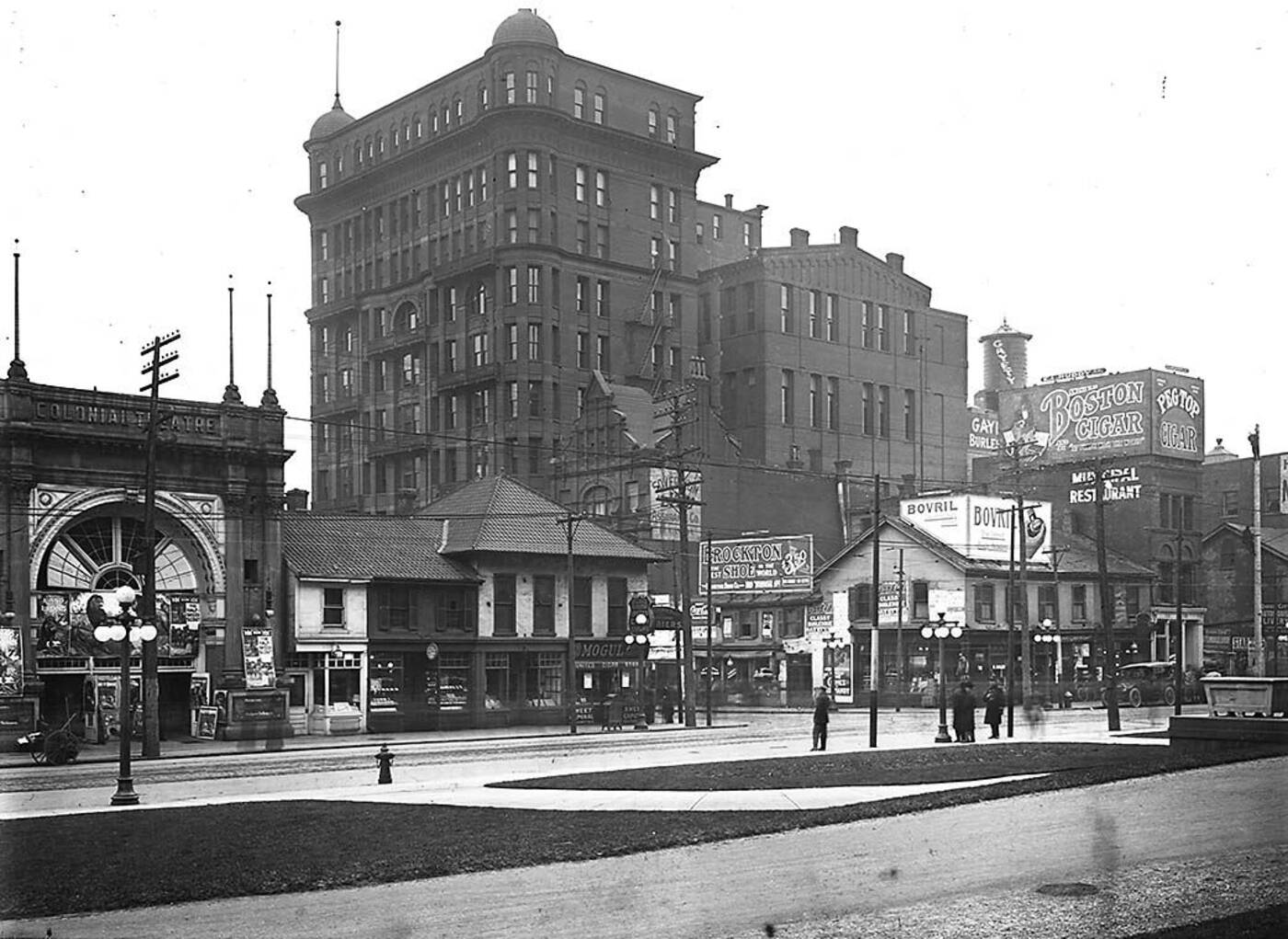
The Temple Building near Queen and Bay streets at the outset of the decade.
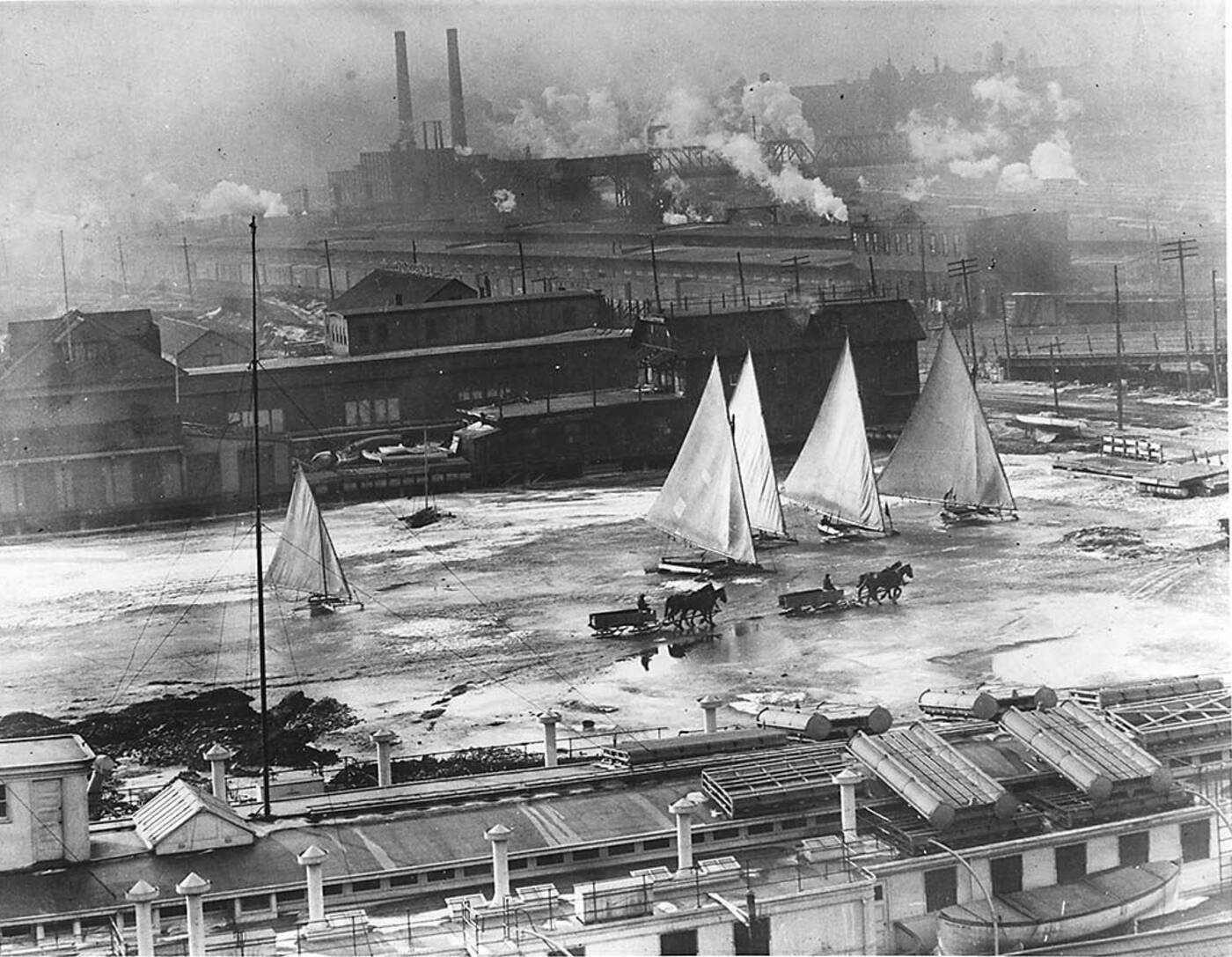
The industrial port of the early 1920s.
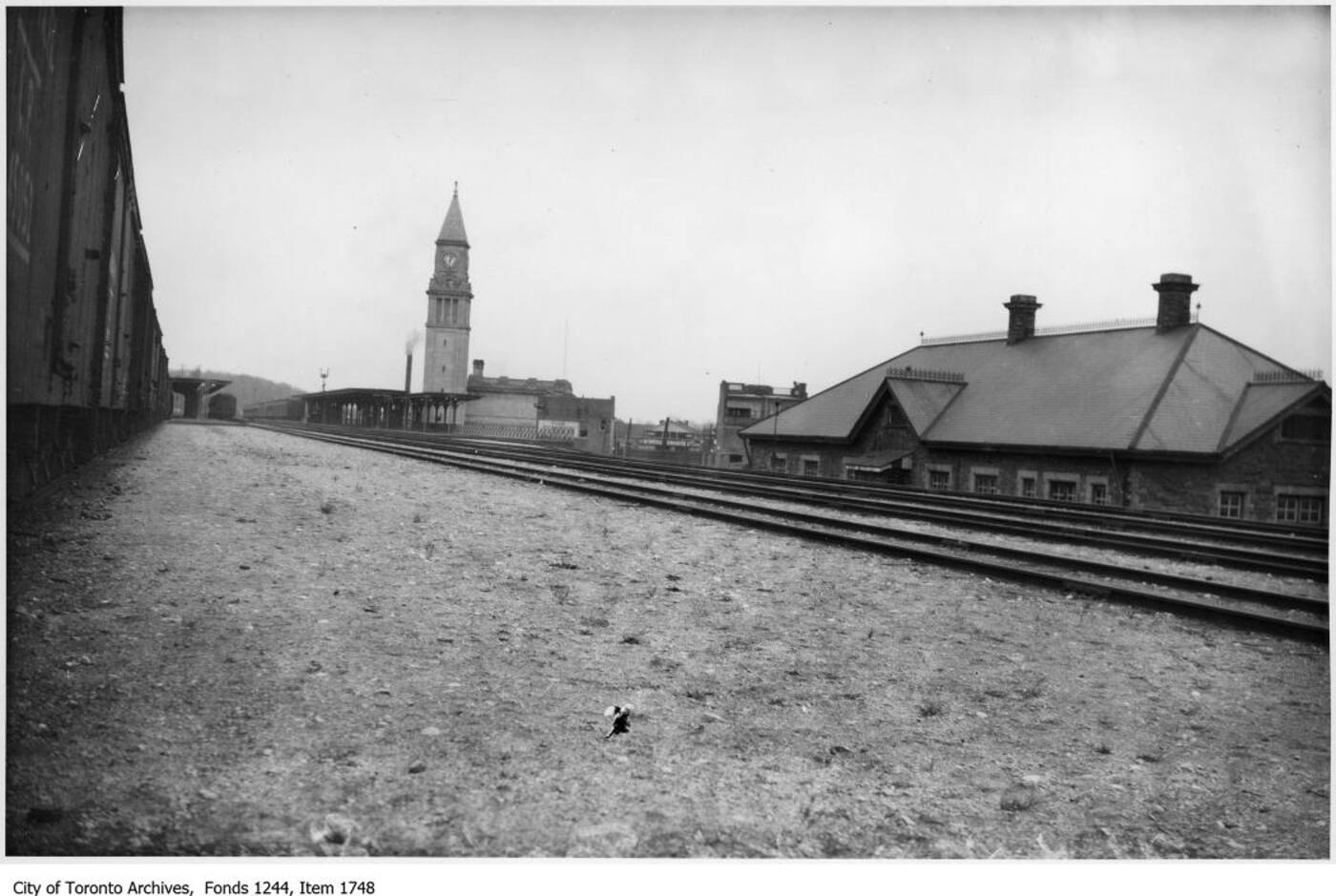
Old and new North Toronto train stations side by side. The one on the left is the LCBO's flagship store in Toronto.
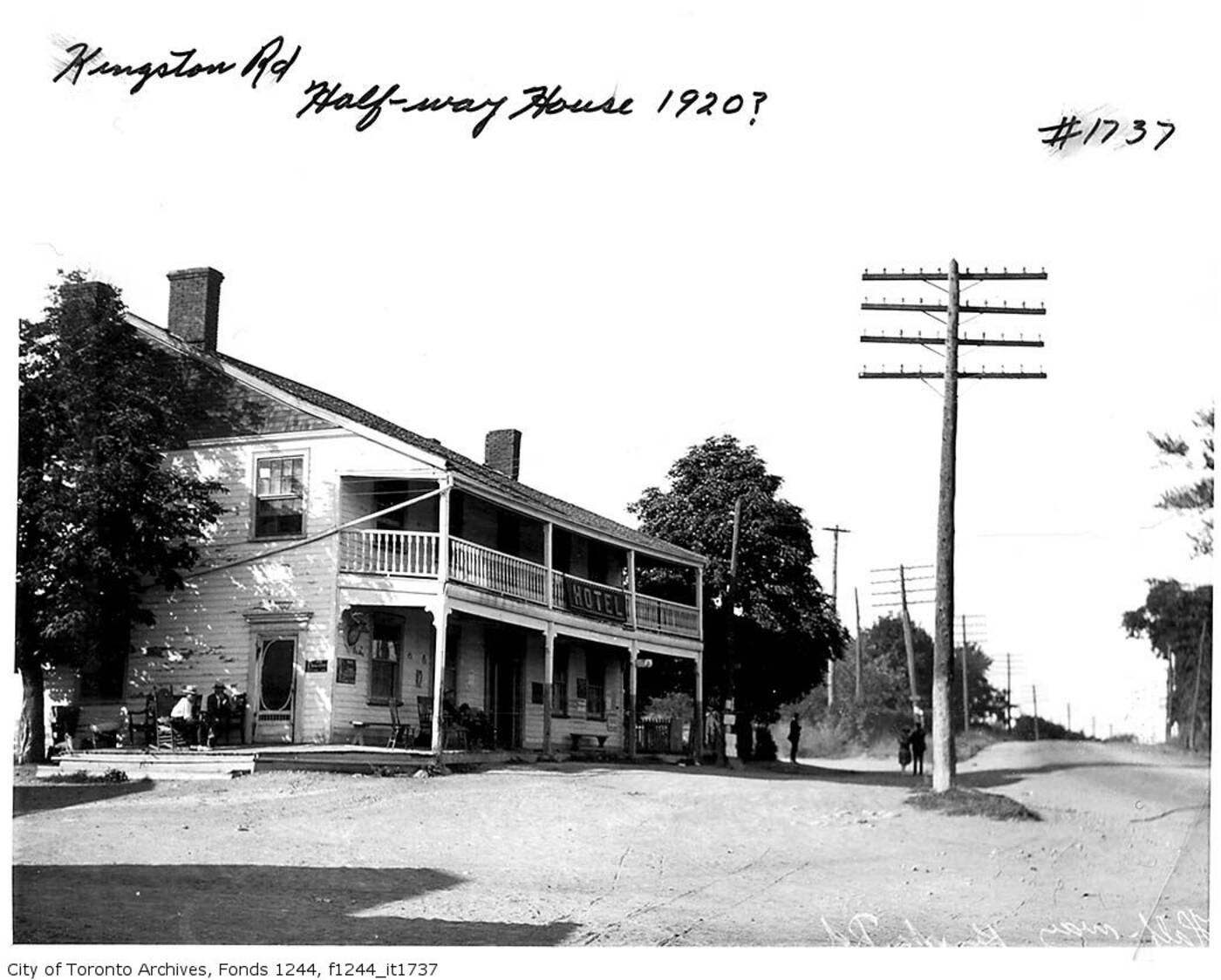
A precursor to the Kingston Road motel strip in 1921.
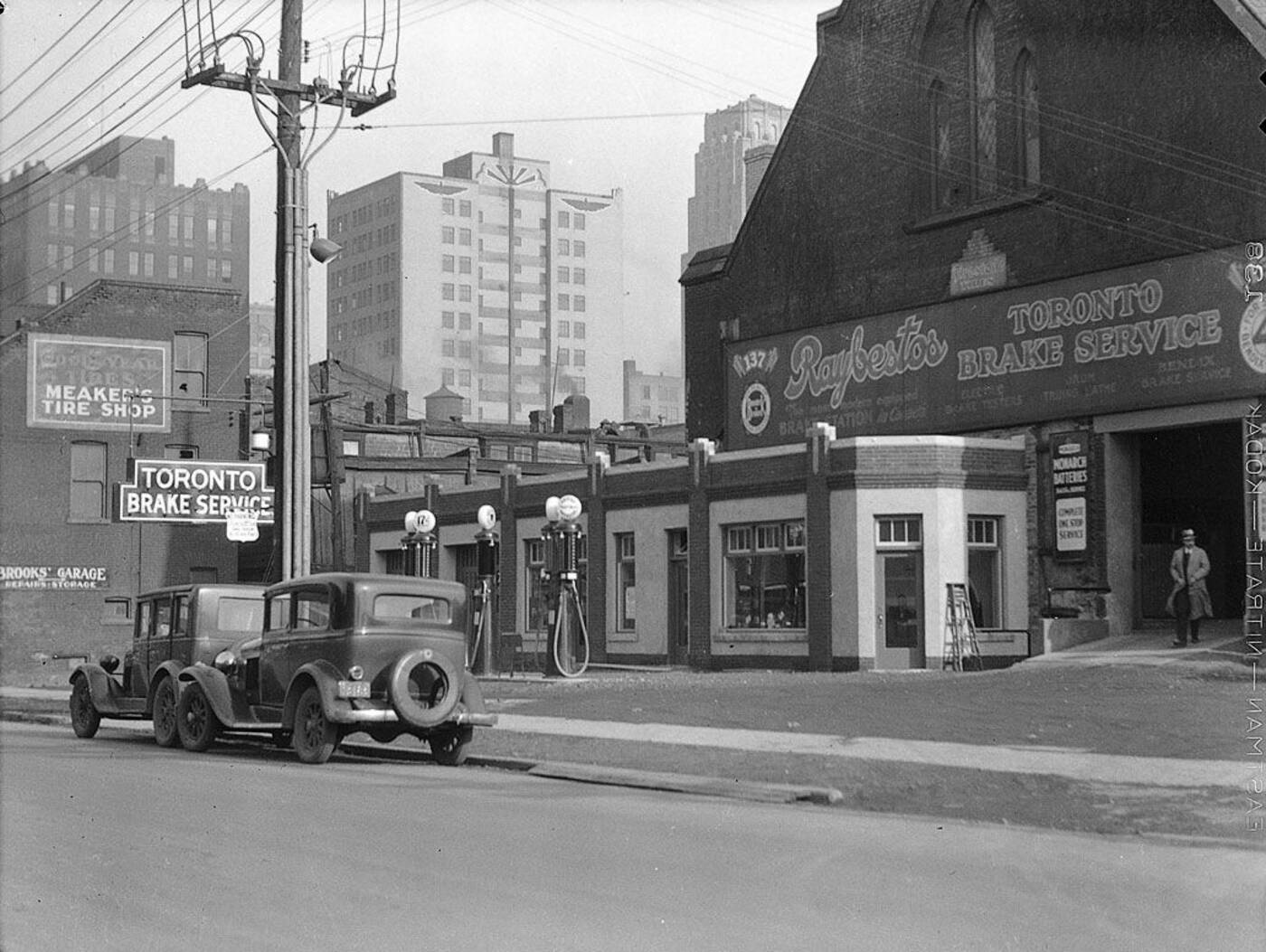
Gas station and auto shop near Queen and York streets. Many more of these were on the way as automobile ownership increased.
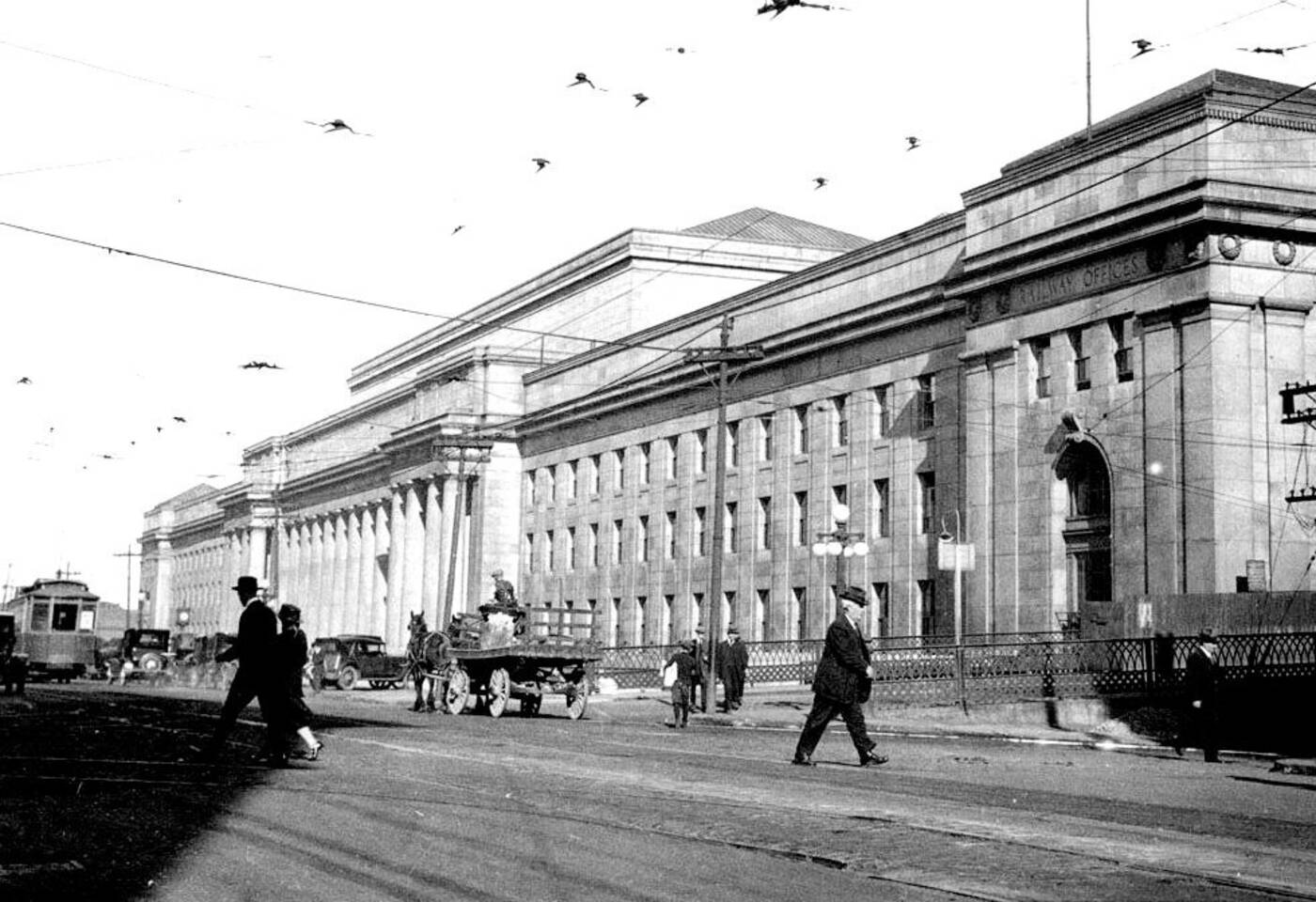
Union Station was pretty much complete in this photo from 1925, but it wouldn't officially open until two years later.
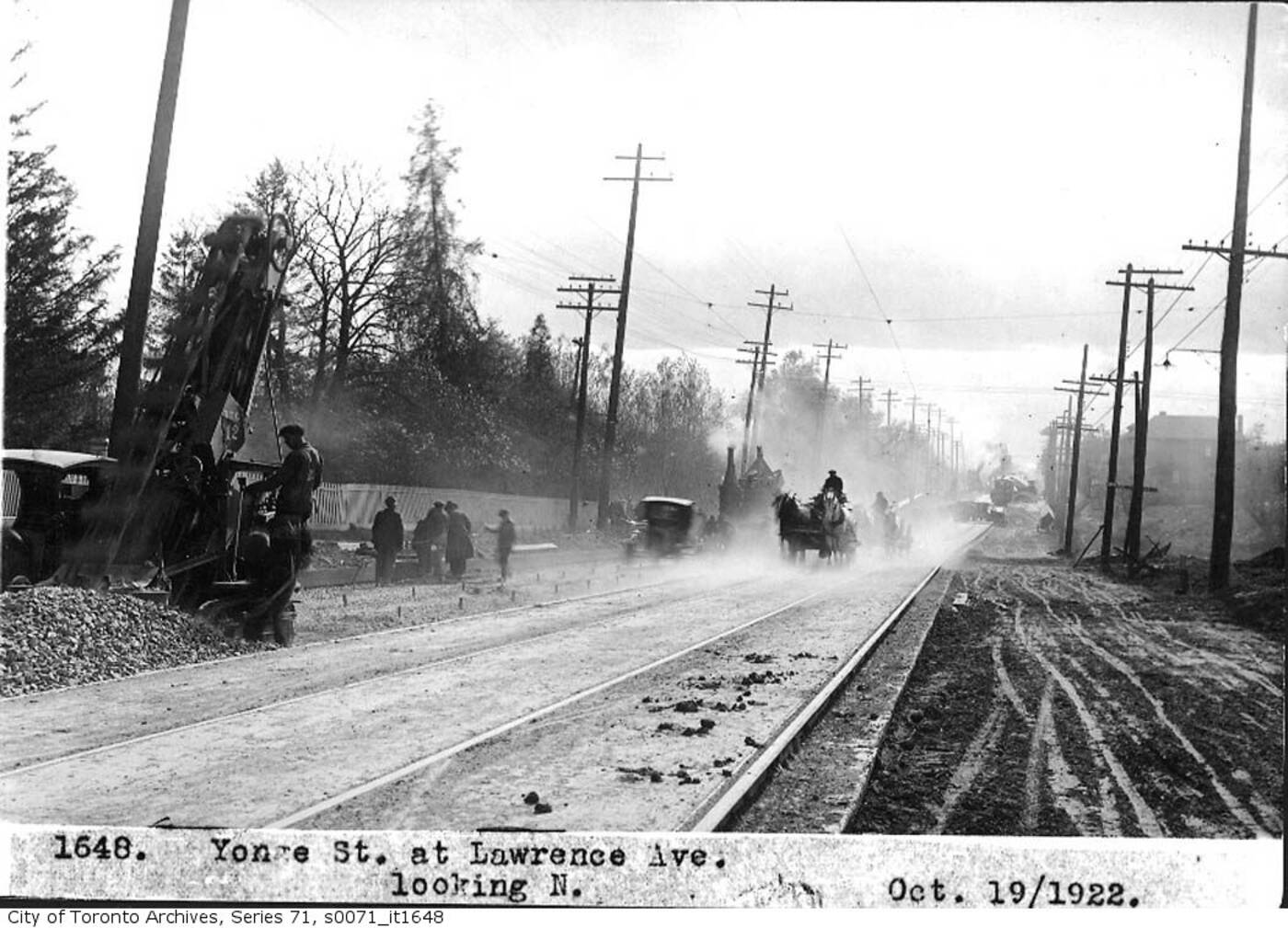
Photos like this are a reminder of how young a city Toronto is. Looking up Yonge Street from Lawrence Avenue in 1922.
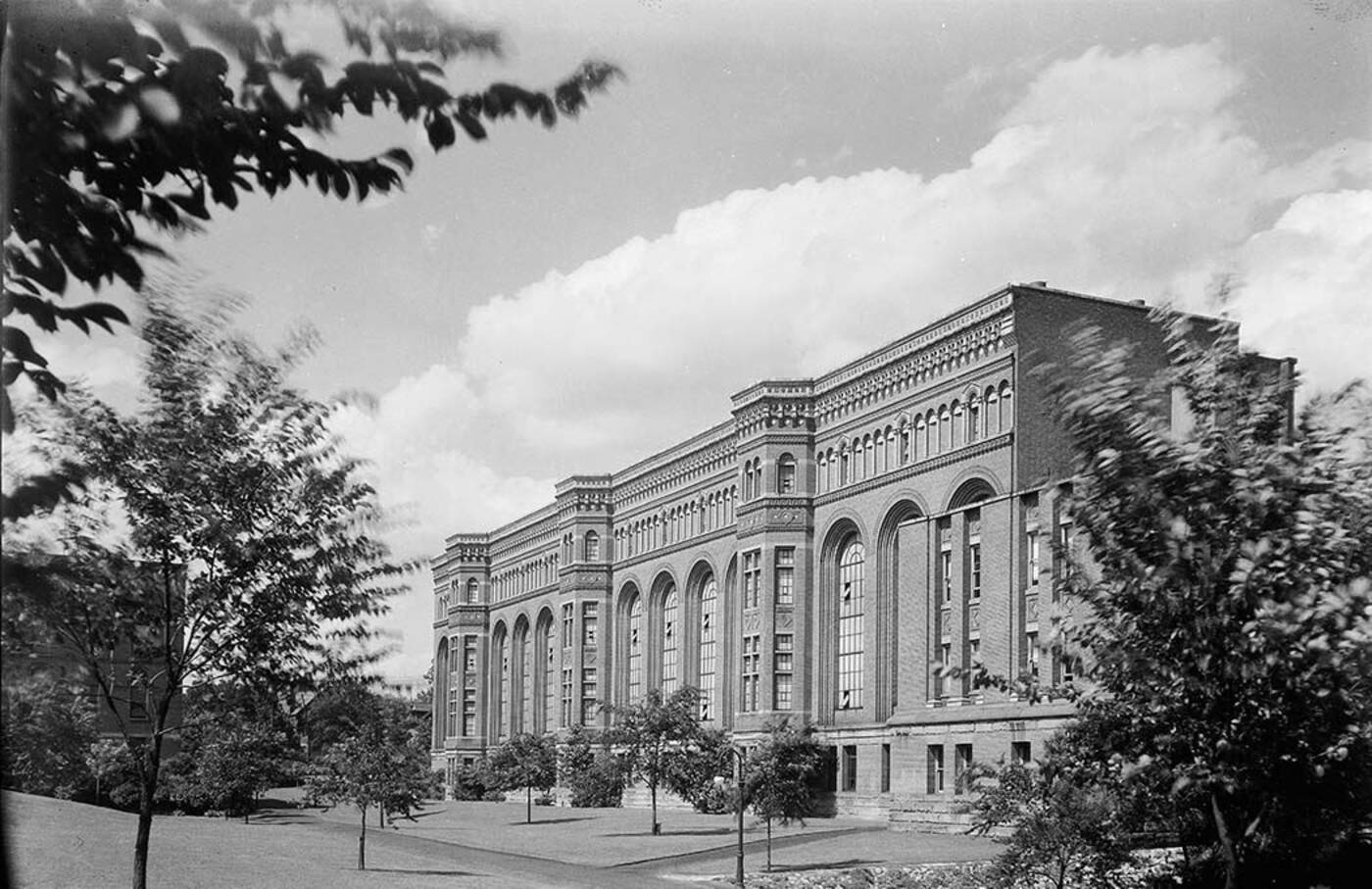
A still newish looking Royal Ontario Museum.
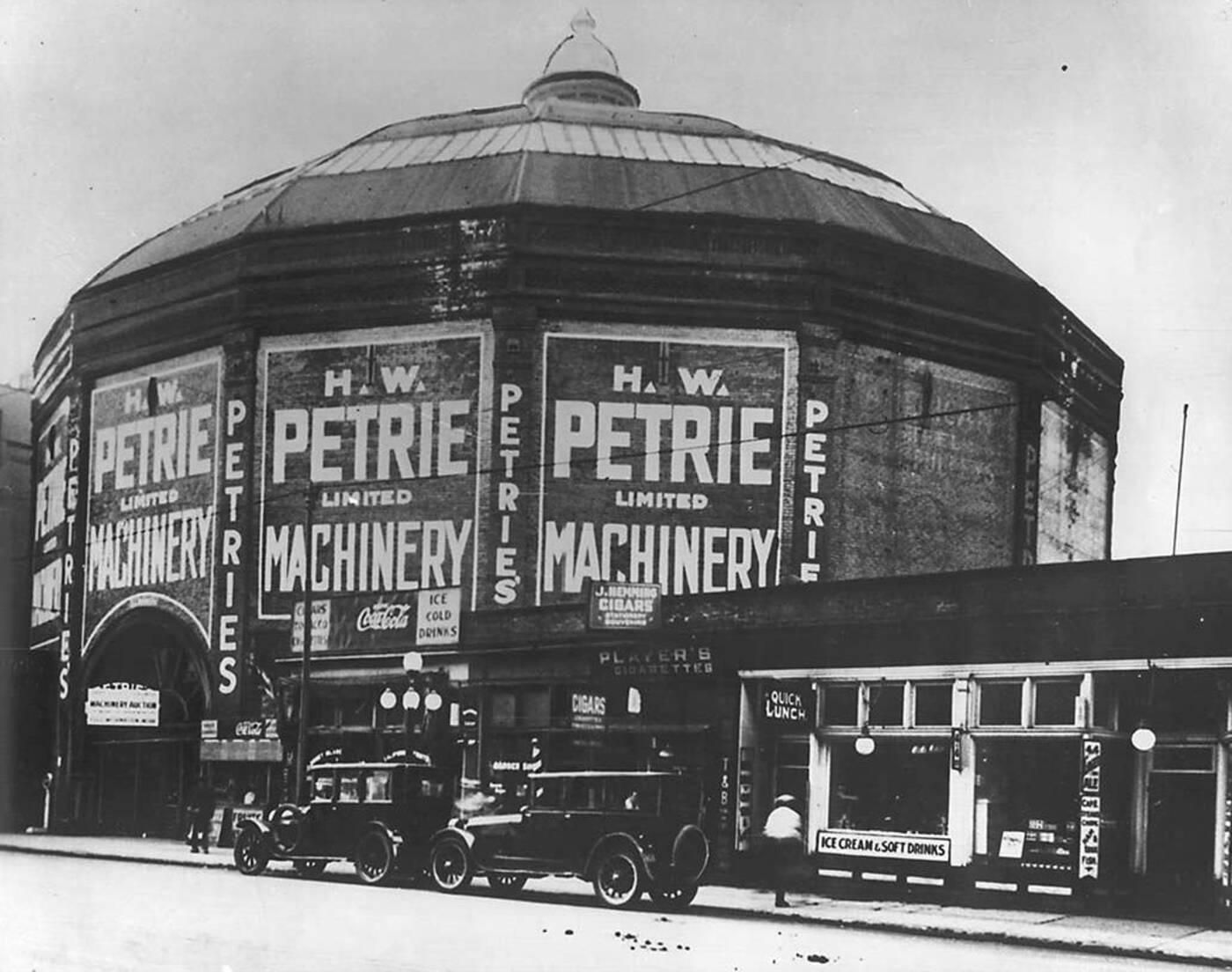
The Cyclorama Building in the last years before it became a parking lot for the Royal York Hotel.
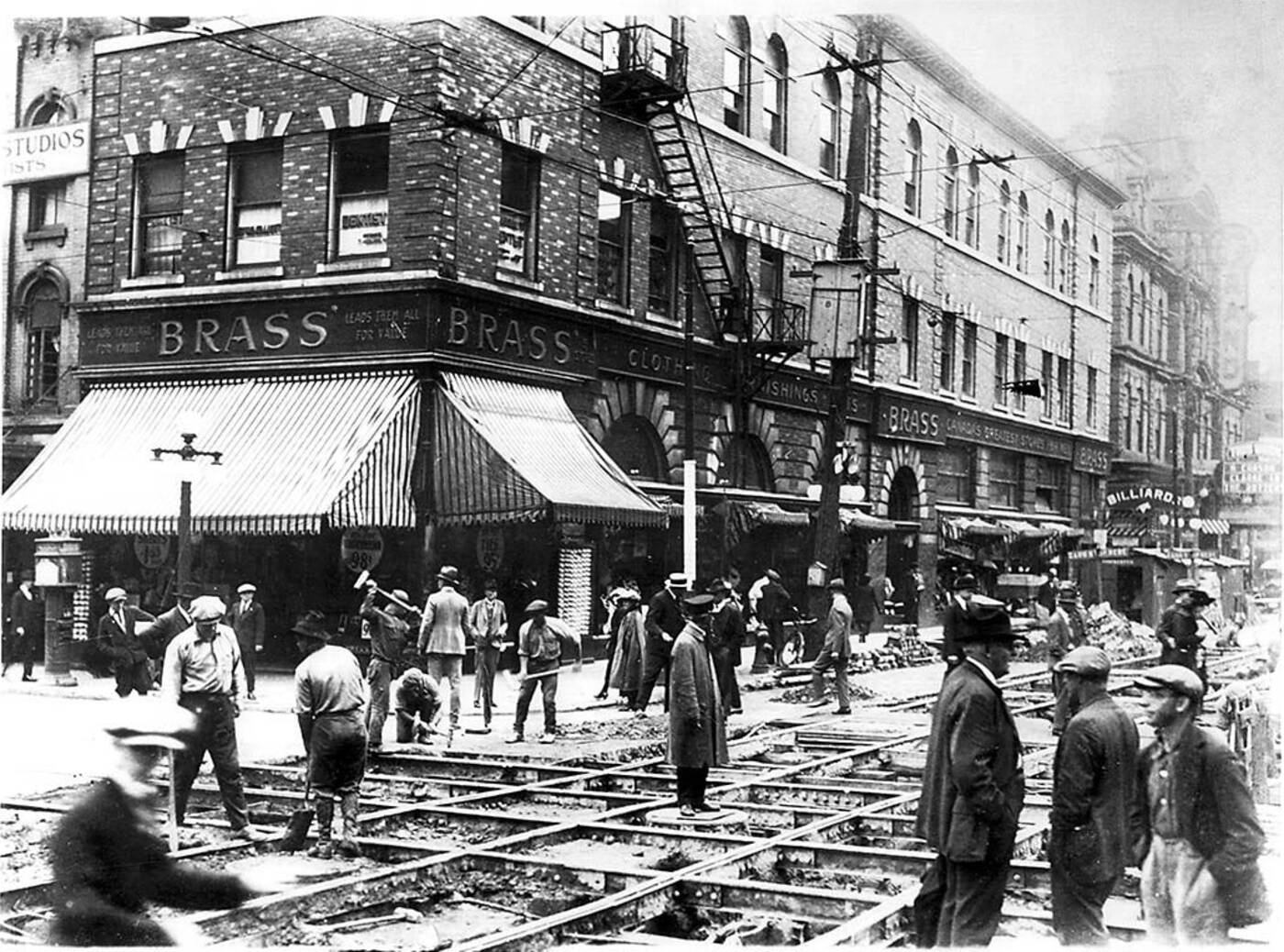
The new TTC was laying and fixing tracks all over the city during the 1920s. This is at Yonge and Adelaide.
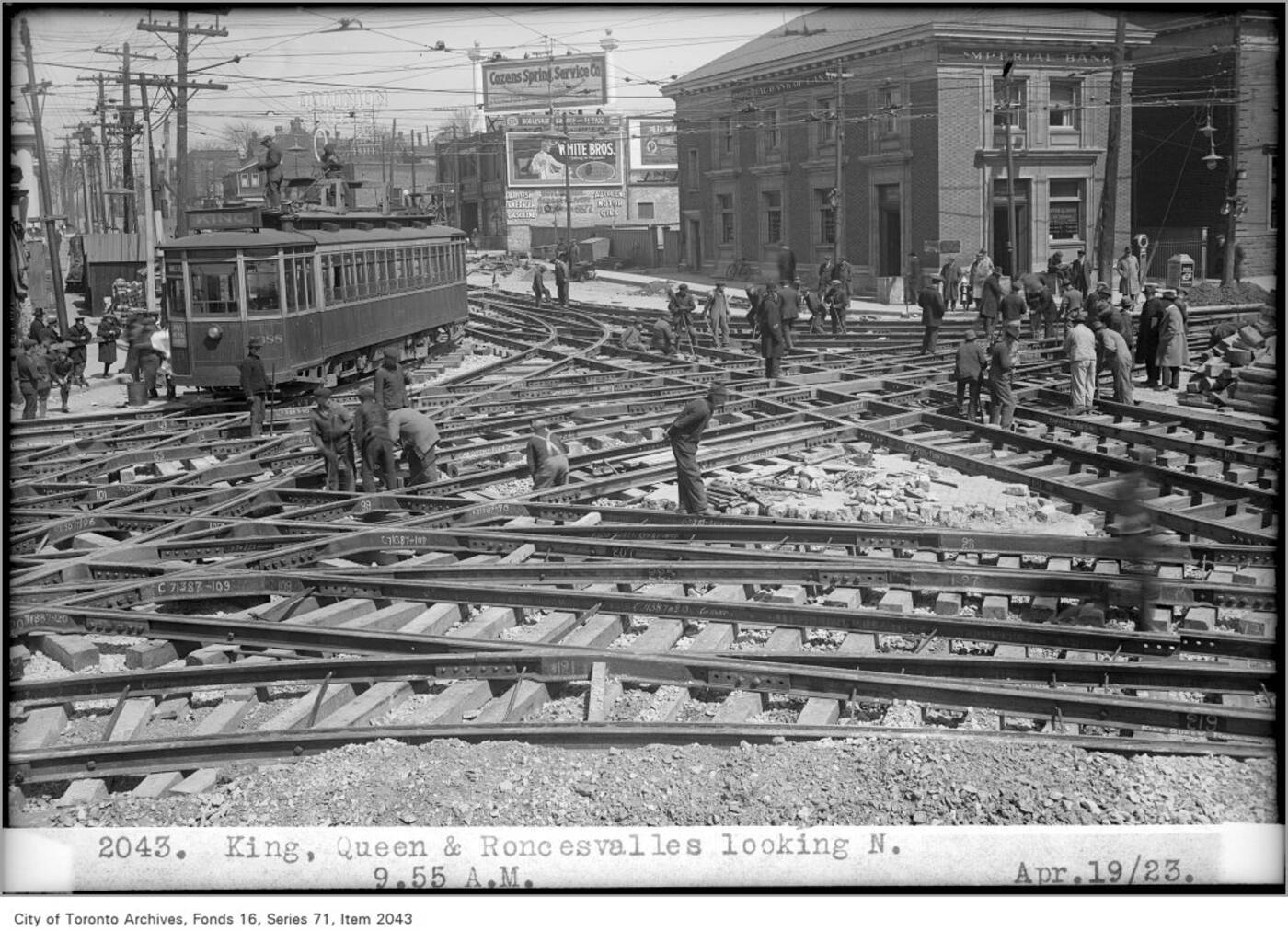
More track work, this time at King, Queen, and Roncesvalles. This intersection is slated for the same rebuilding work in 2019.
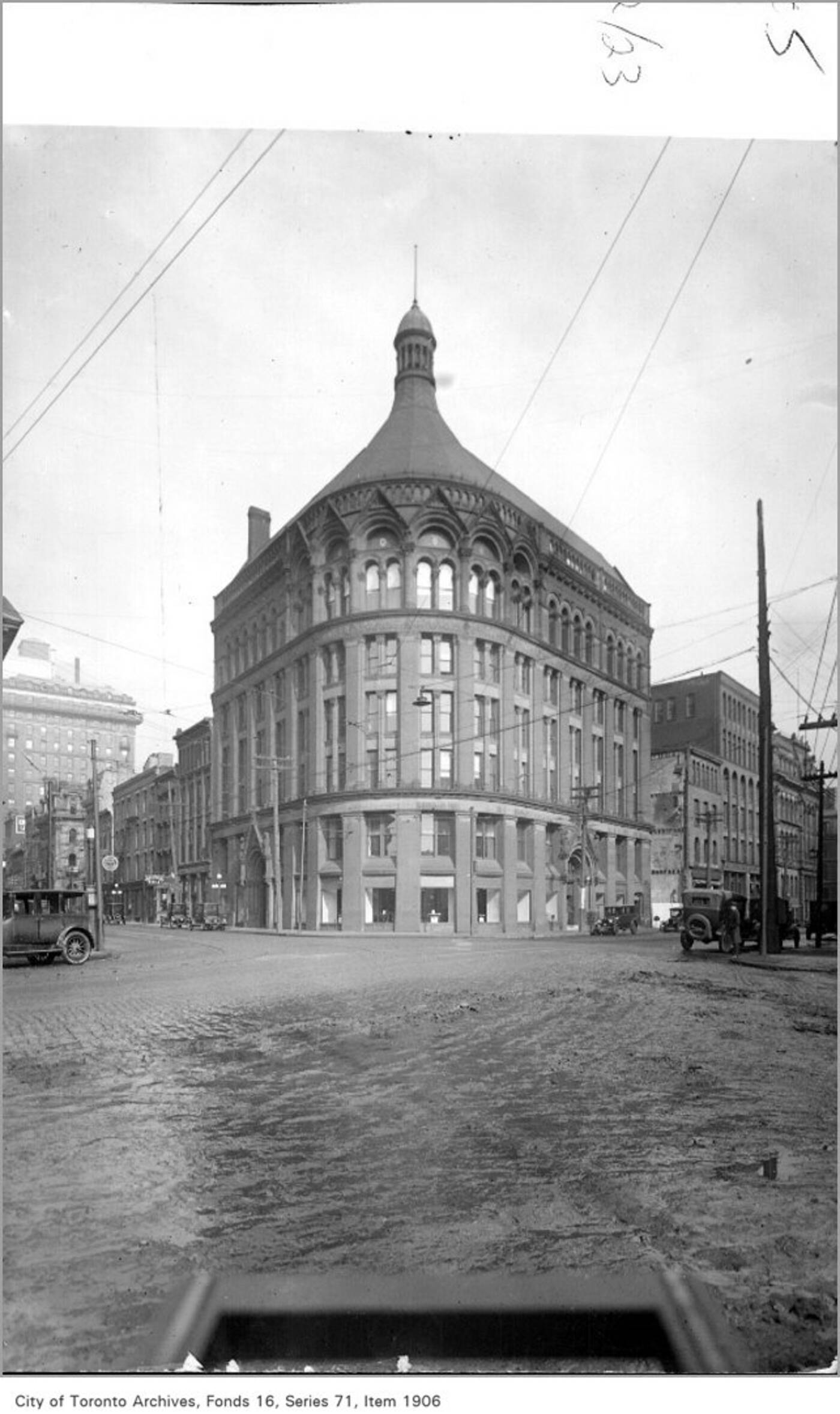
The gorgeous Board of Trade building at Yonge and Front streets, which served as the headquarters for the newly formed TTC.
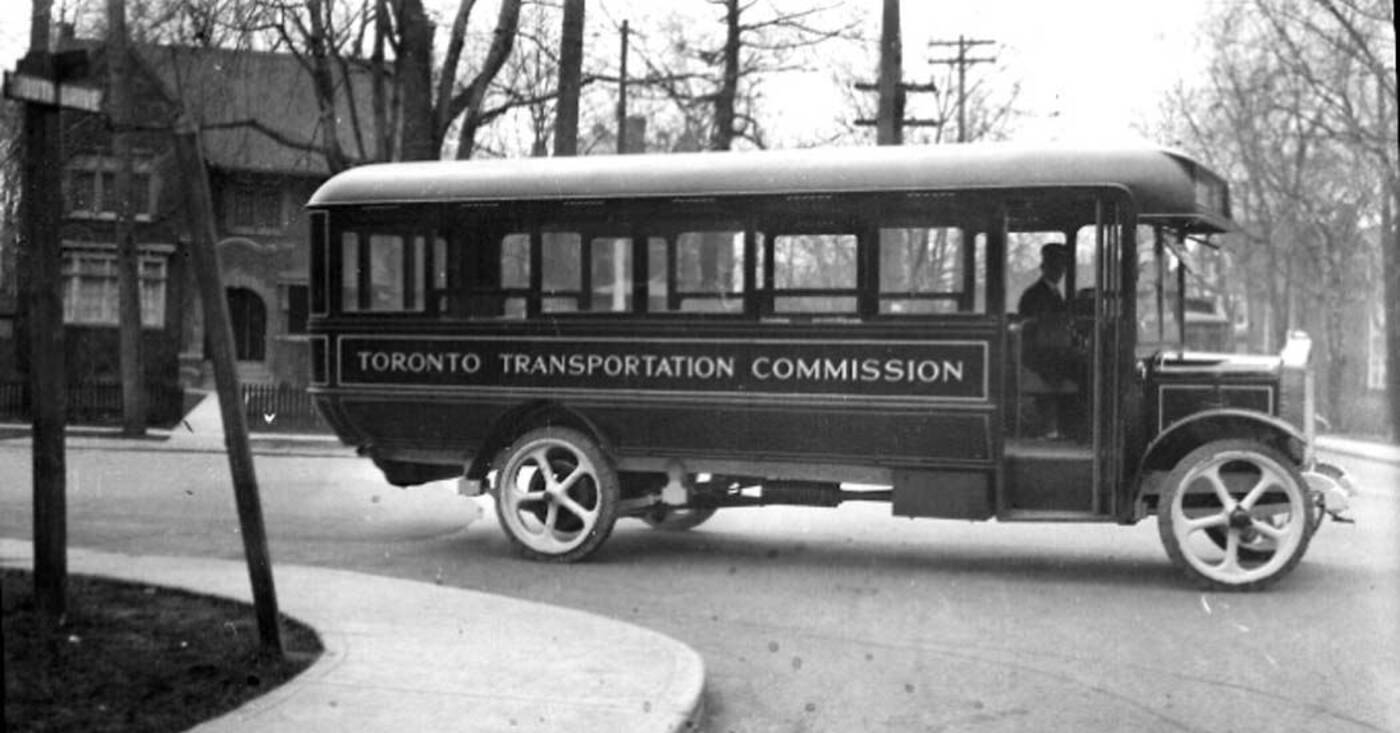
An early example of a TTC bus in 1923.
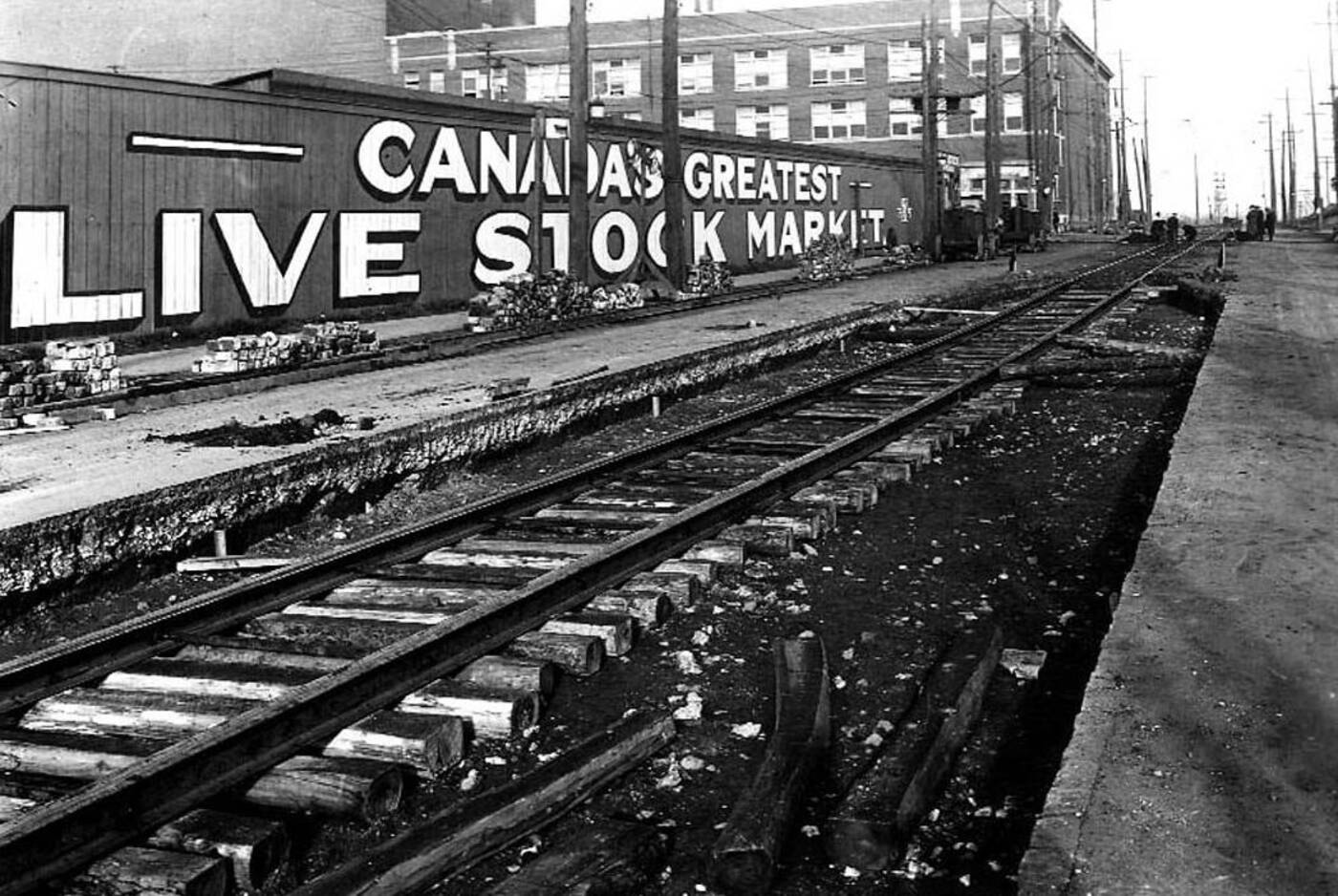
The giant stockyards complex near Keele and St. Clair.
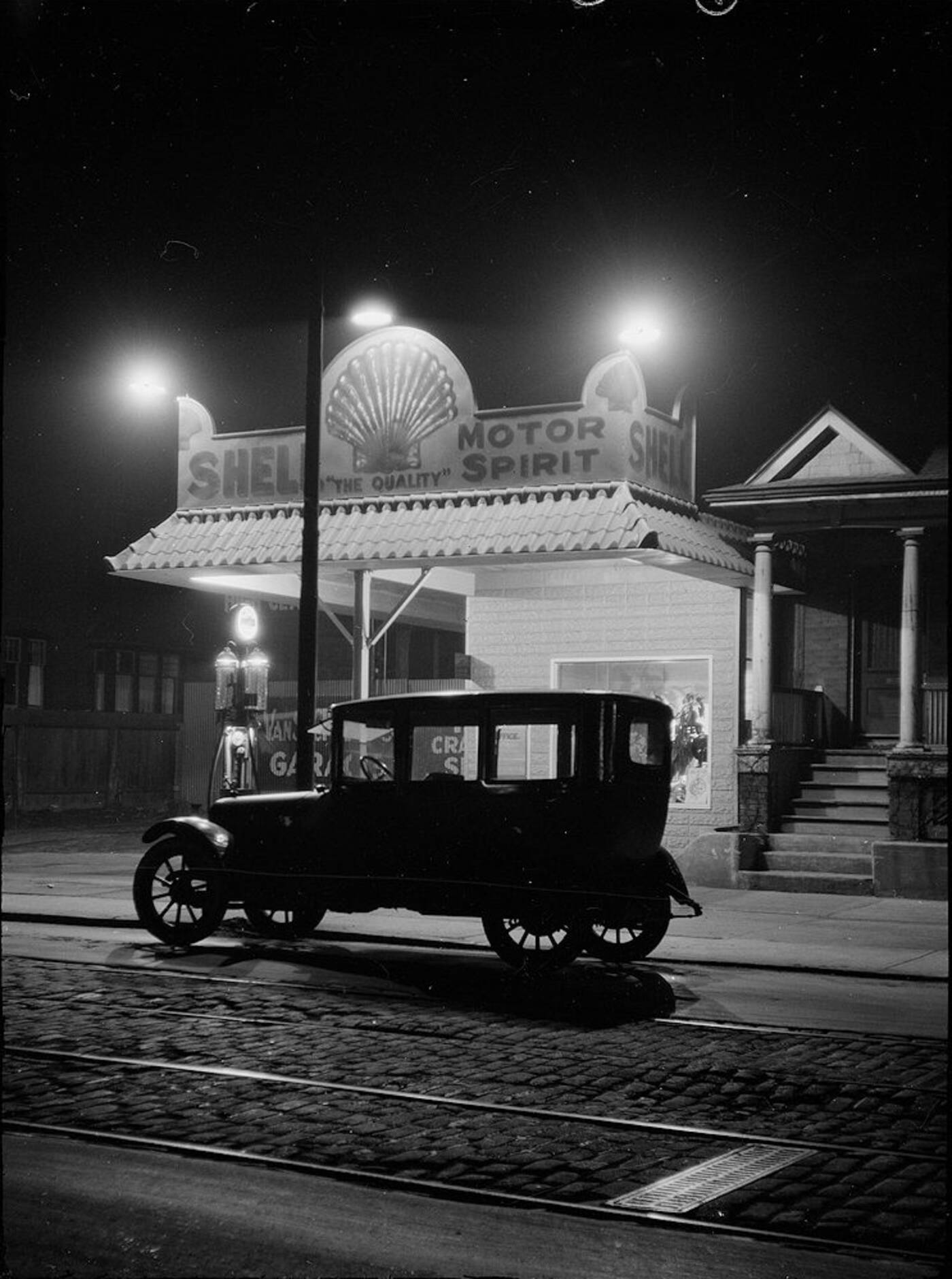
Gassing up in 1924.
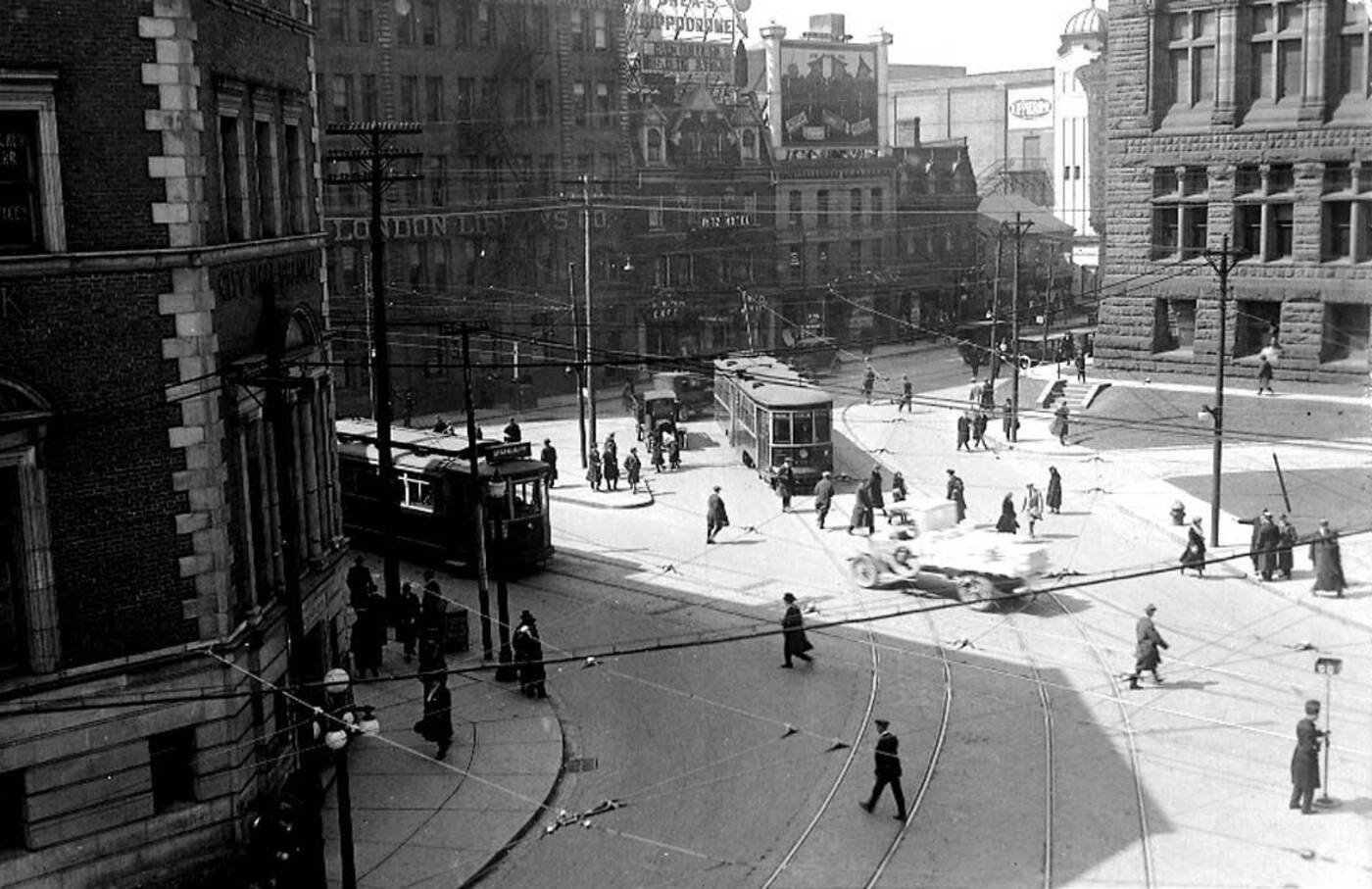
Looking northwest across Queen and Bay toward where New City Hall is today. There's a distinctly European feel to this image from 1924.
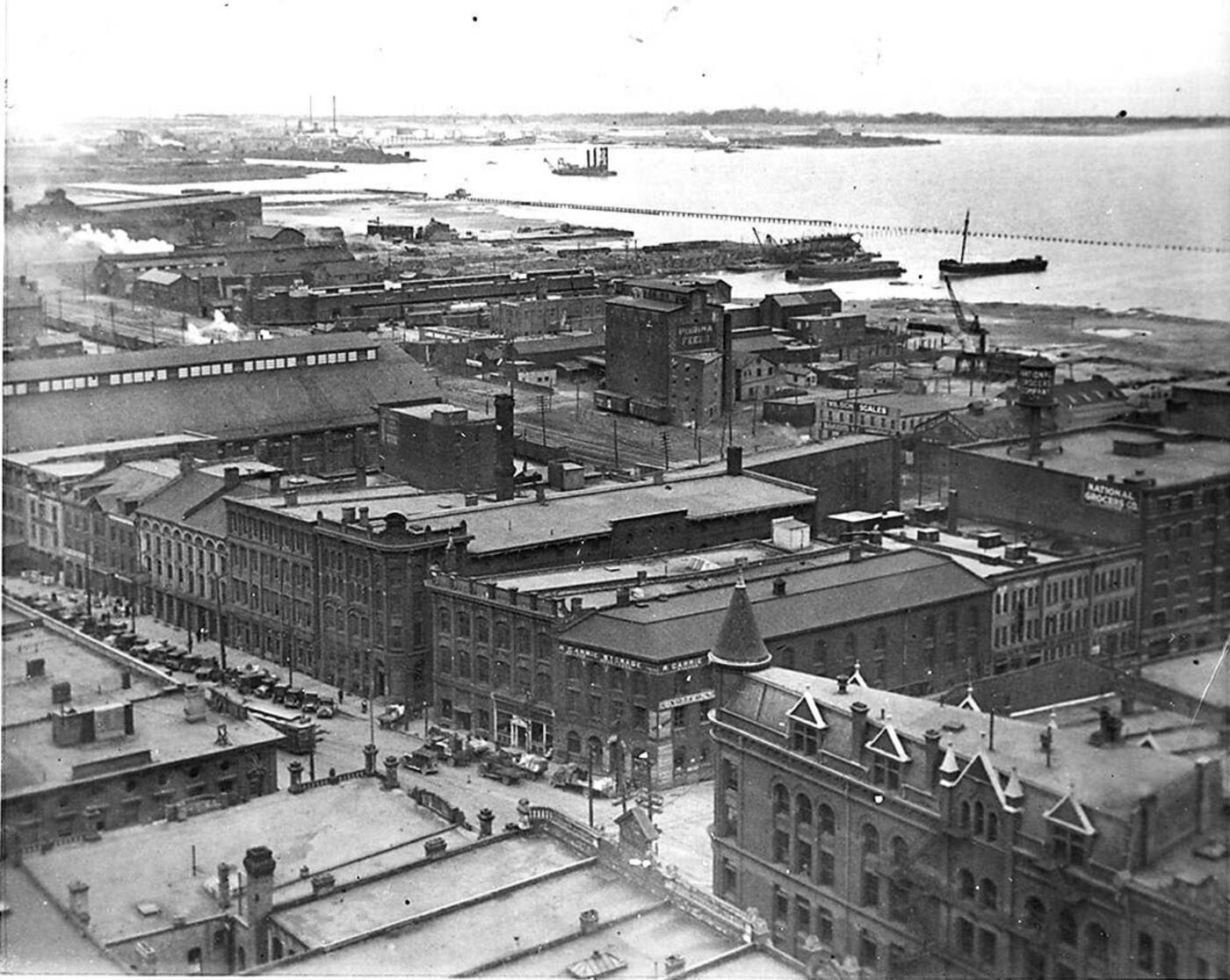
Looking across Front Street and the industrial Esplanade. The Gooderham Building to the bottom right.
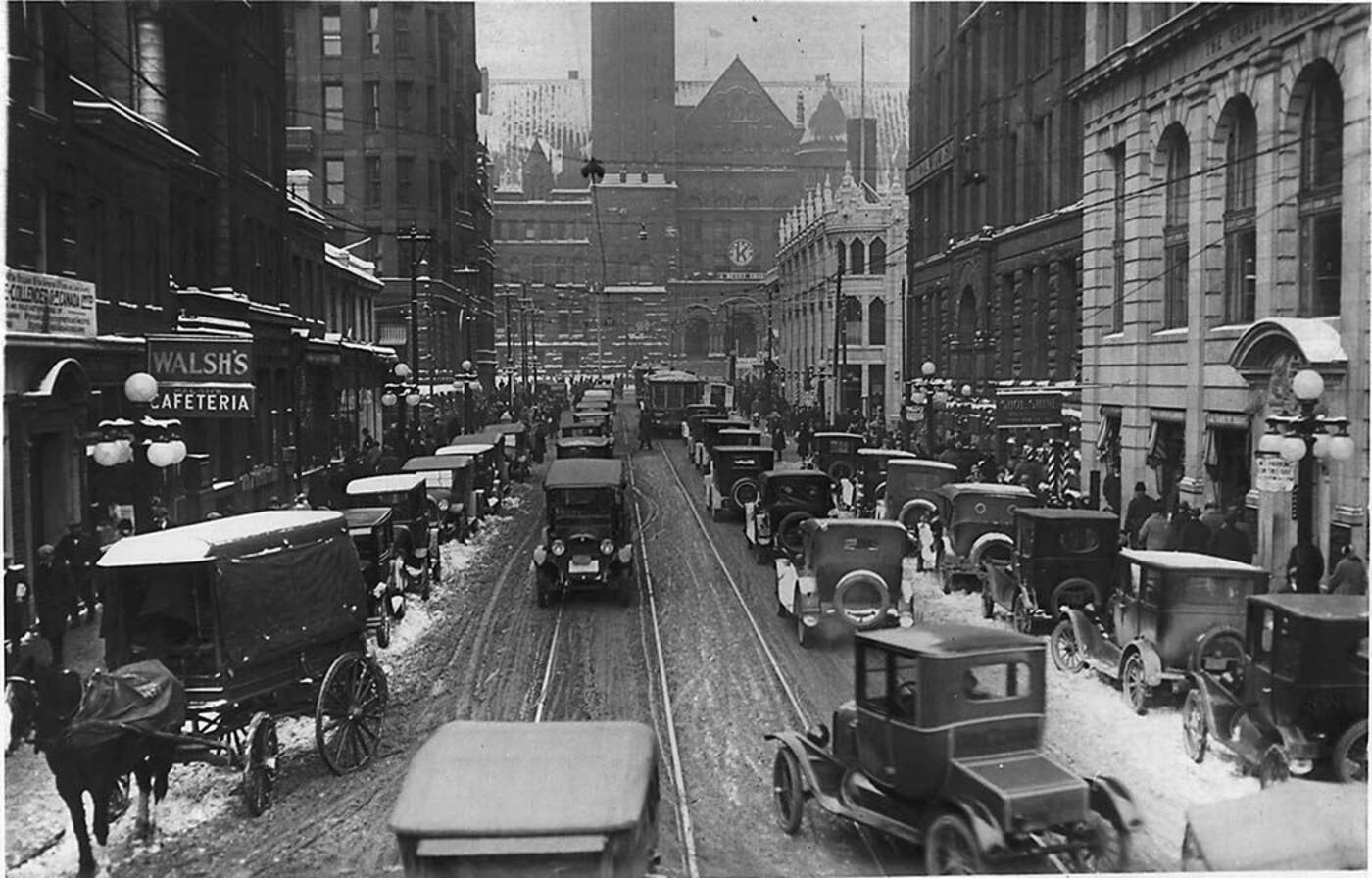
Traffic on Bay Street north of Temperance in 1925.
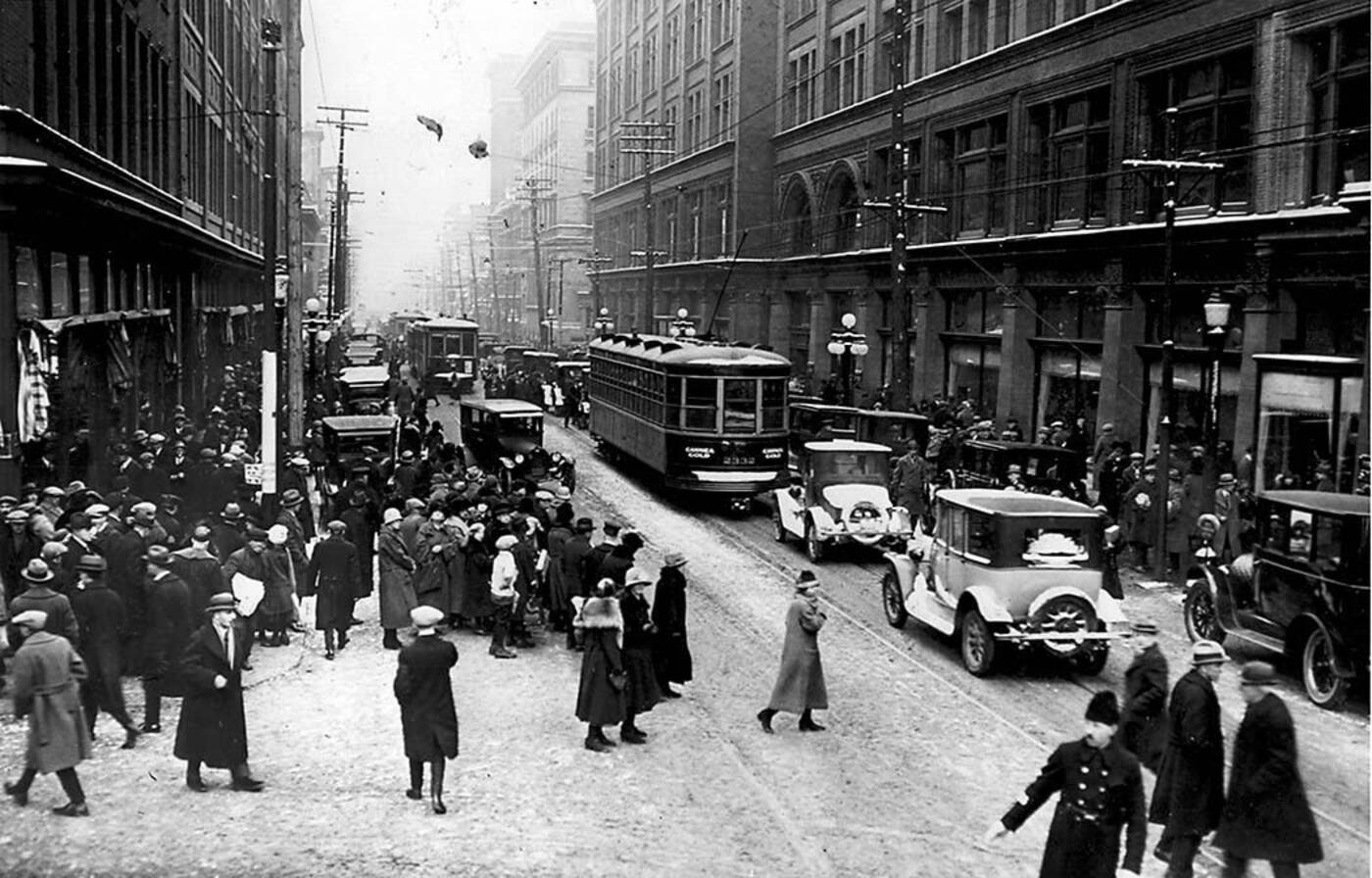
Traffic and crowds on Queen Street just west of Yonge Street.
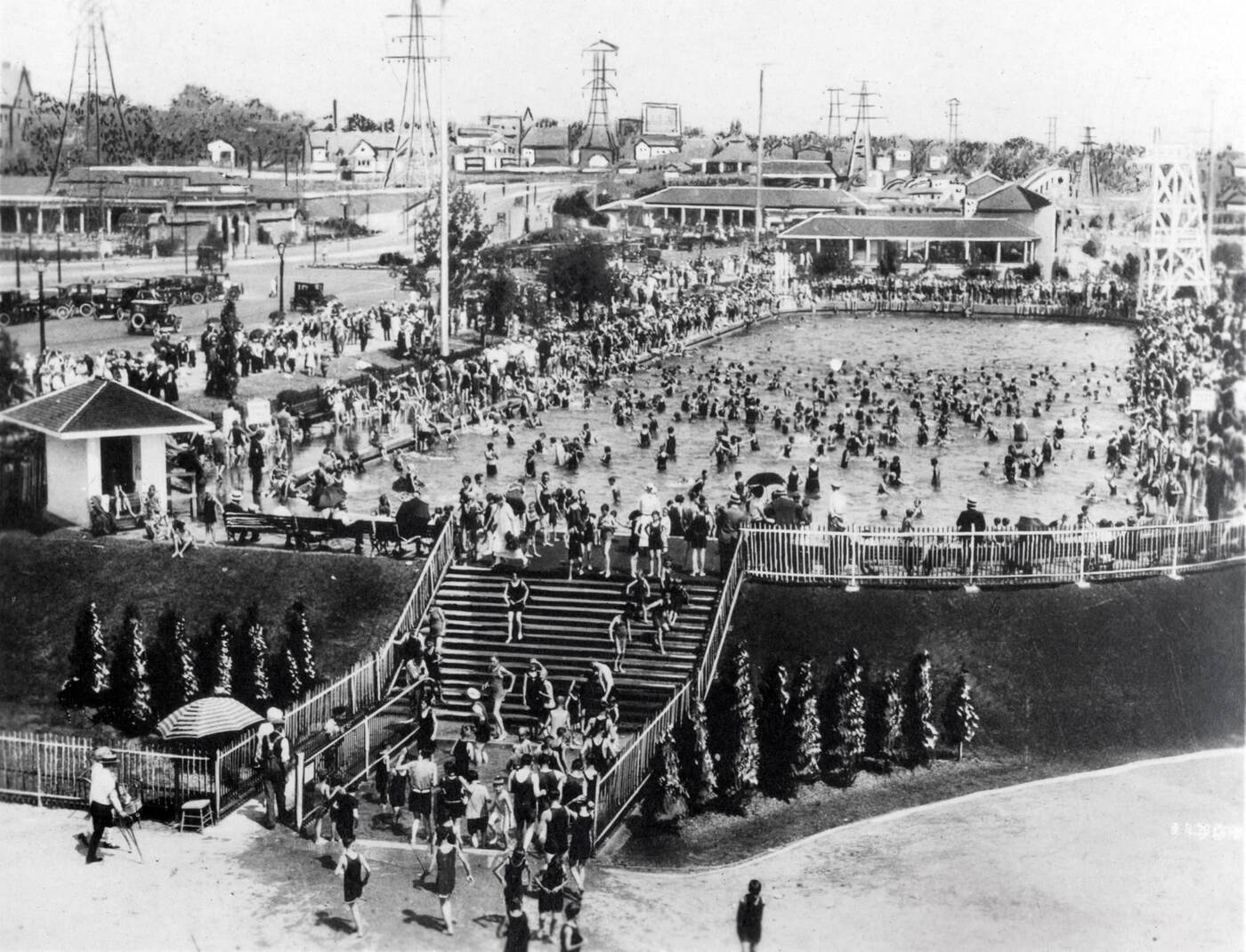
A crowded Sunnyside swimming pool in 1925.
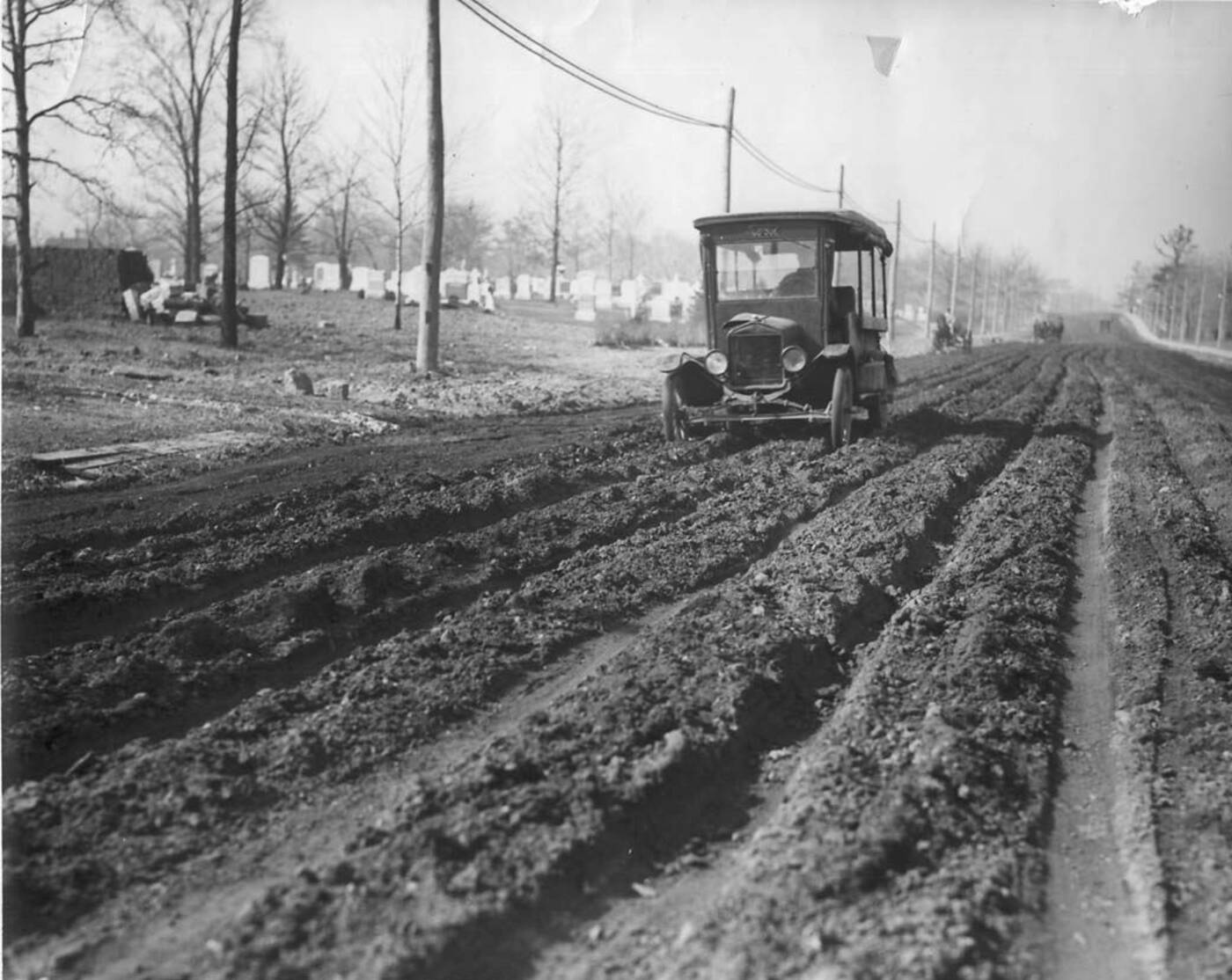
Muddy Mount Pleasant beside the cemetery that still bears its name.
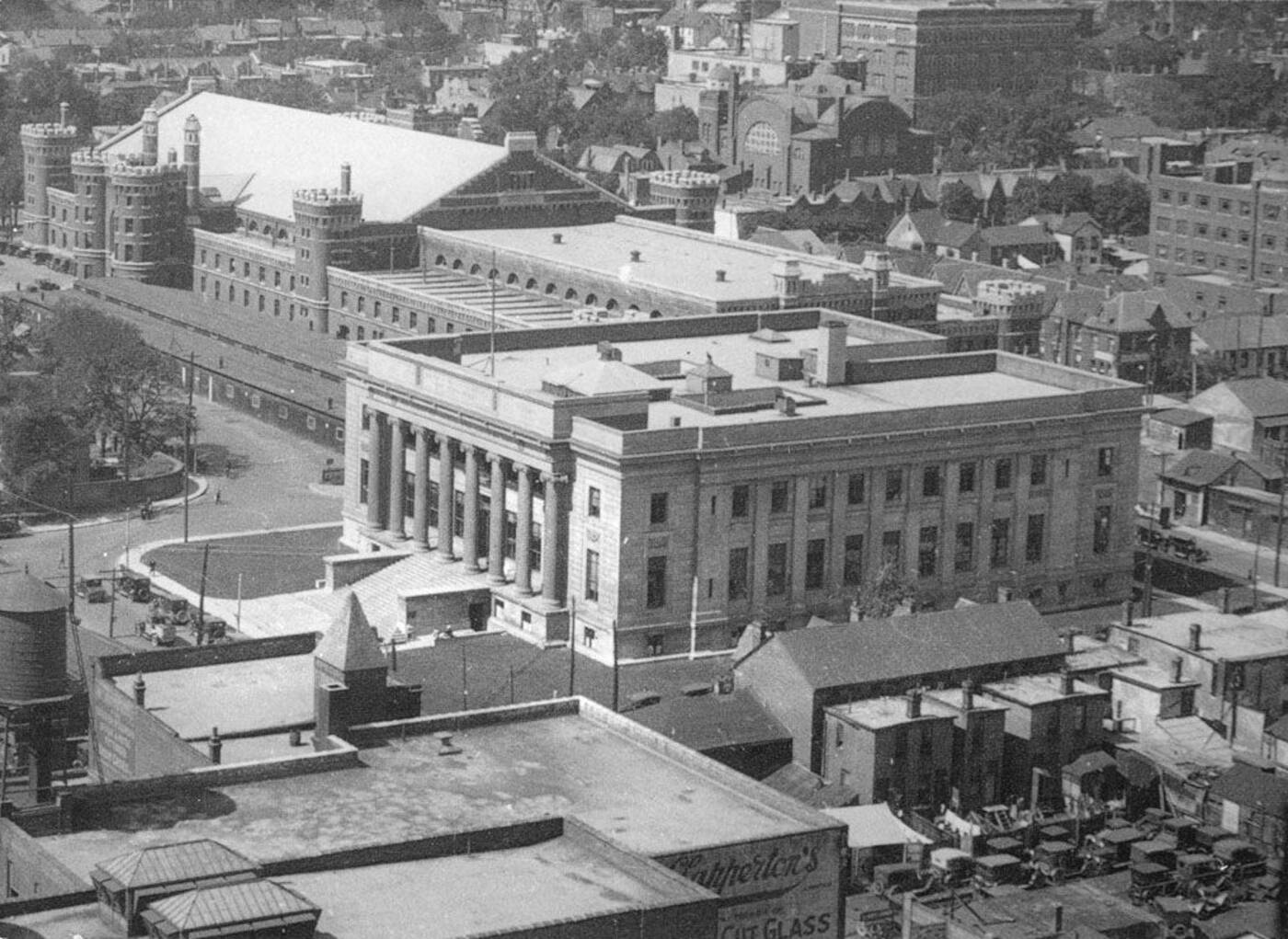
Looking at the Land Registry Building and the Toronto Armouries (both demolished) from the City Hall clock tower.
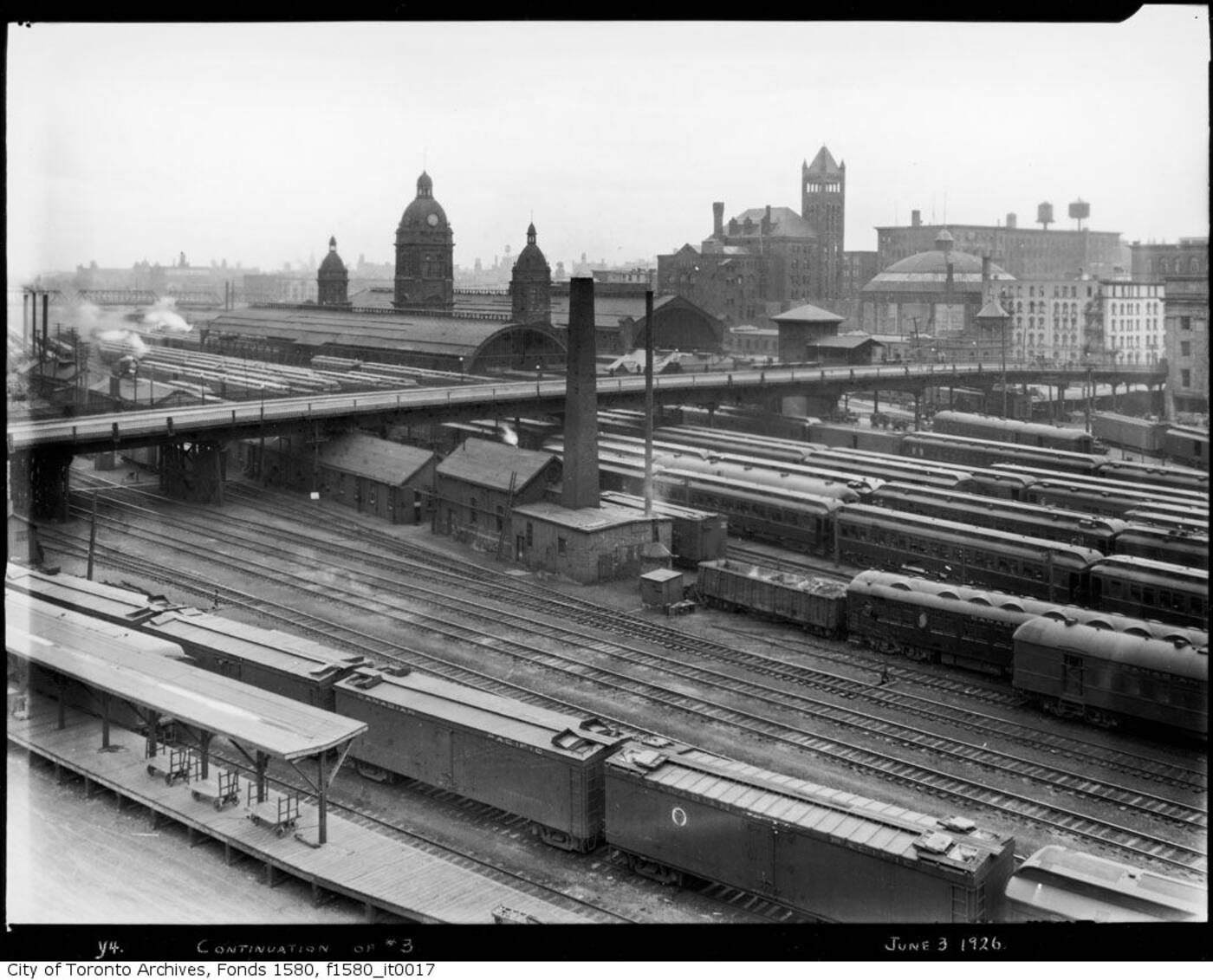
Toronto's second Union Station and the railway lands in the year before its replacement would open.
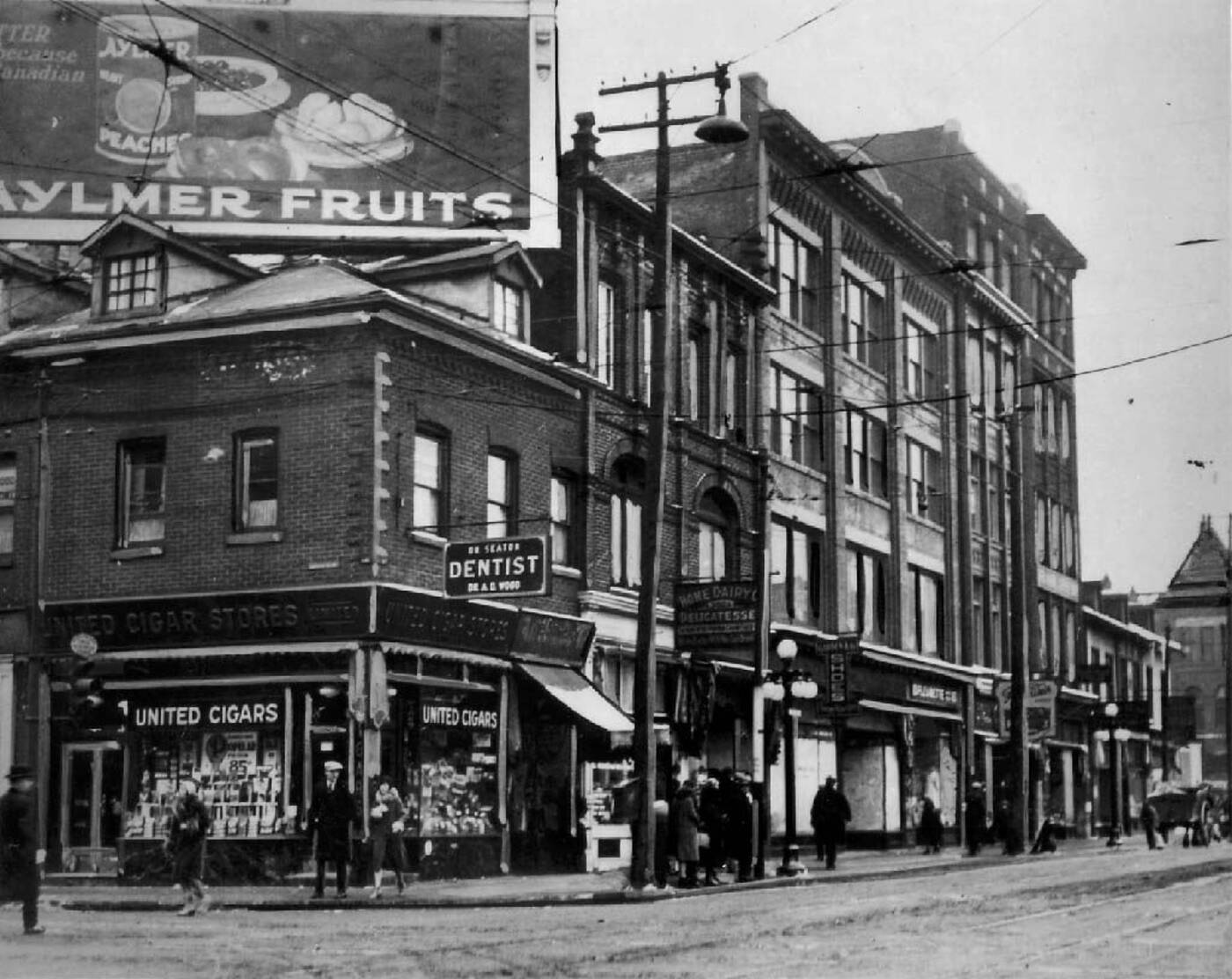
The northwest corner of Yonge and Dundas.
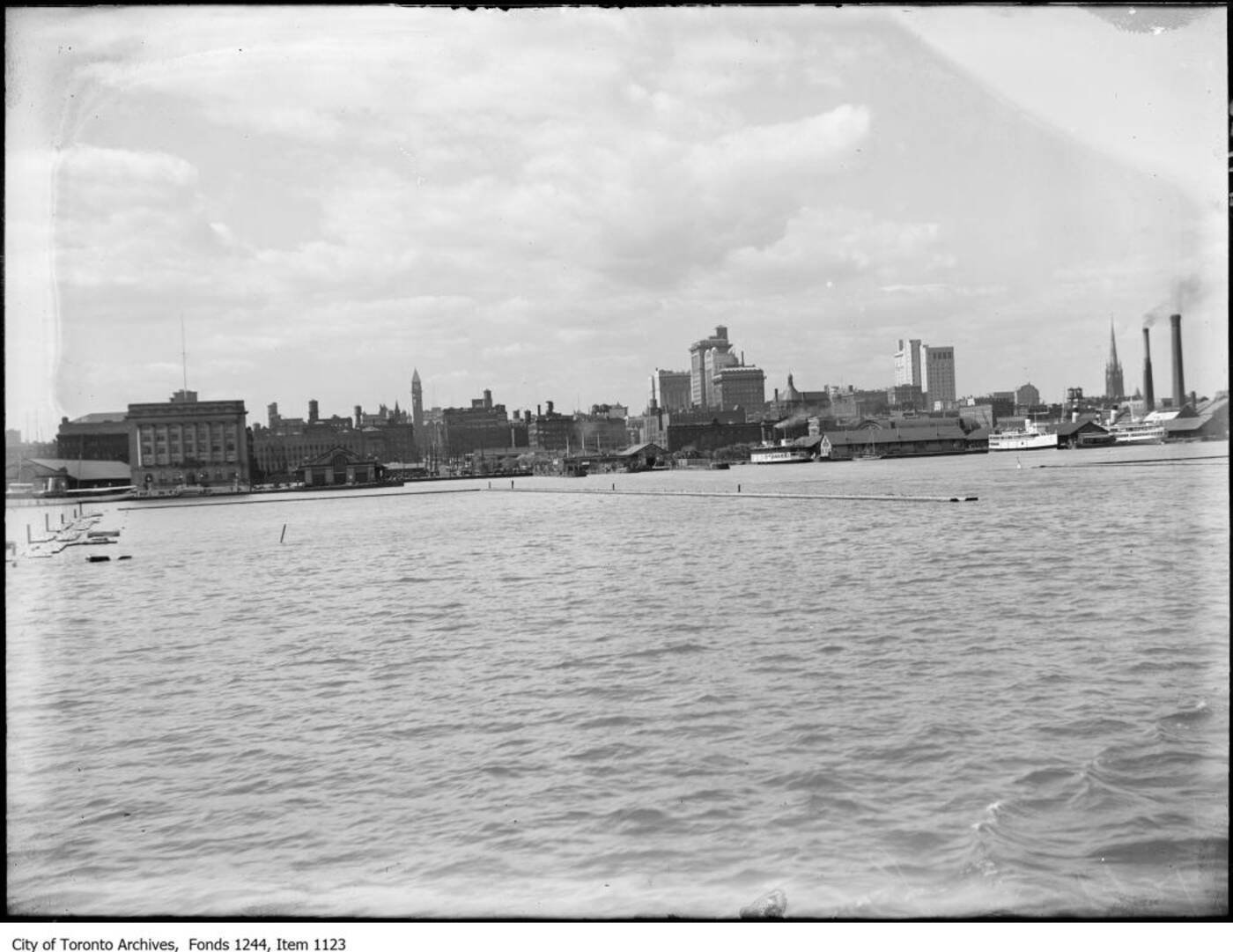
City Hall still made a mark on the skyline in the mid 1920s. You can also see the Harbour Commission Building to the left as well as Toronto's first skyscraper, the Trader's Bank Building.
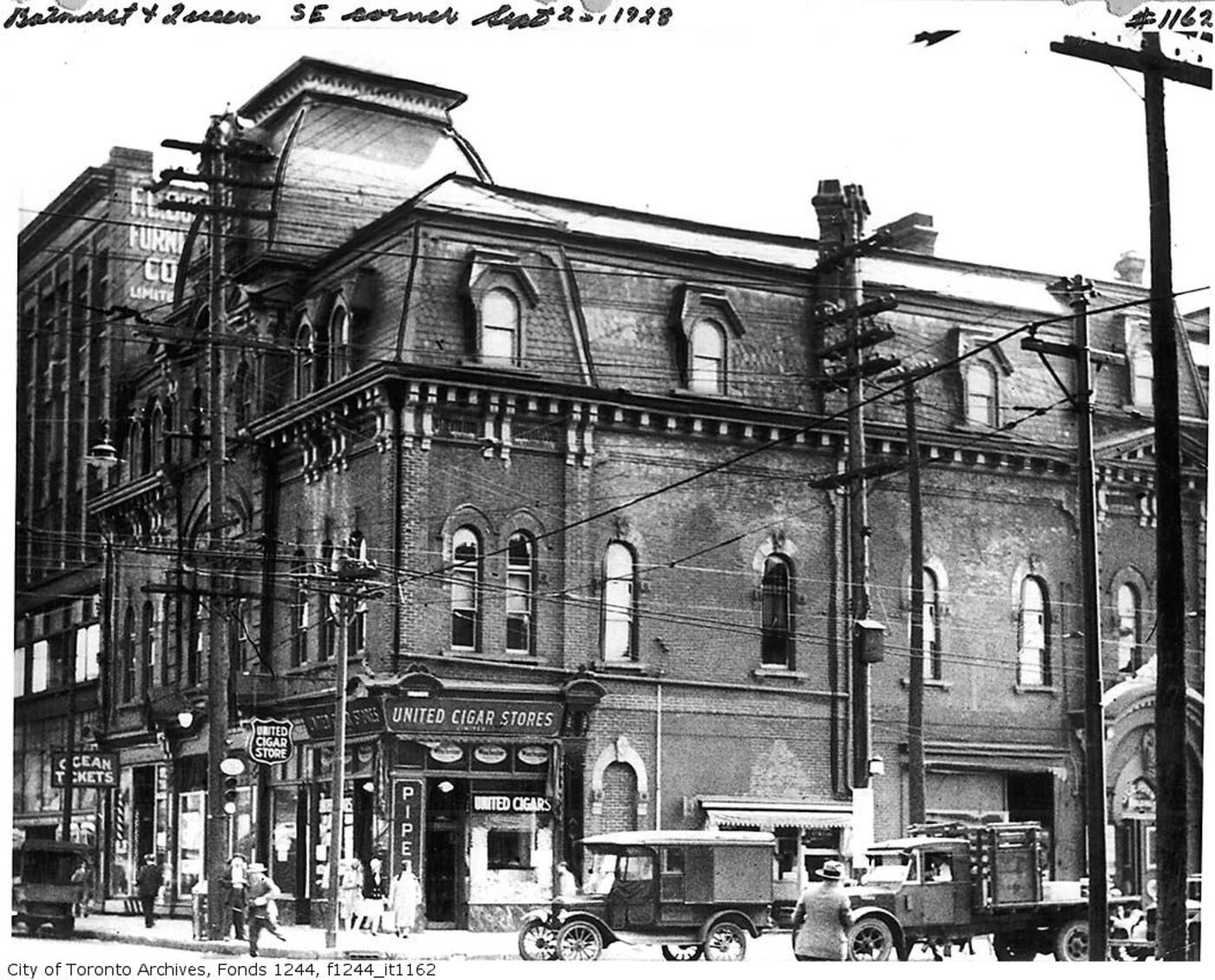
Southeast corner of Queen and Bathurst streets. This building still remains as a CB2 furniture store.
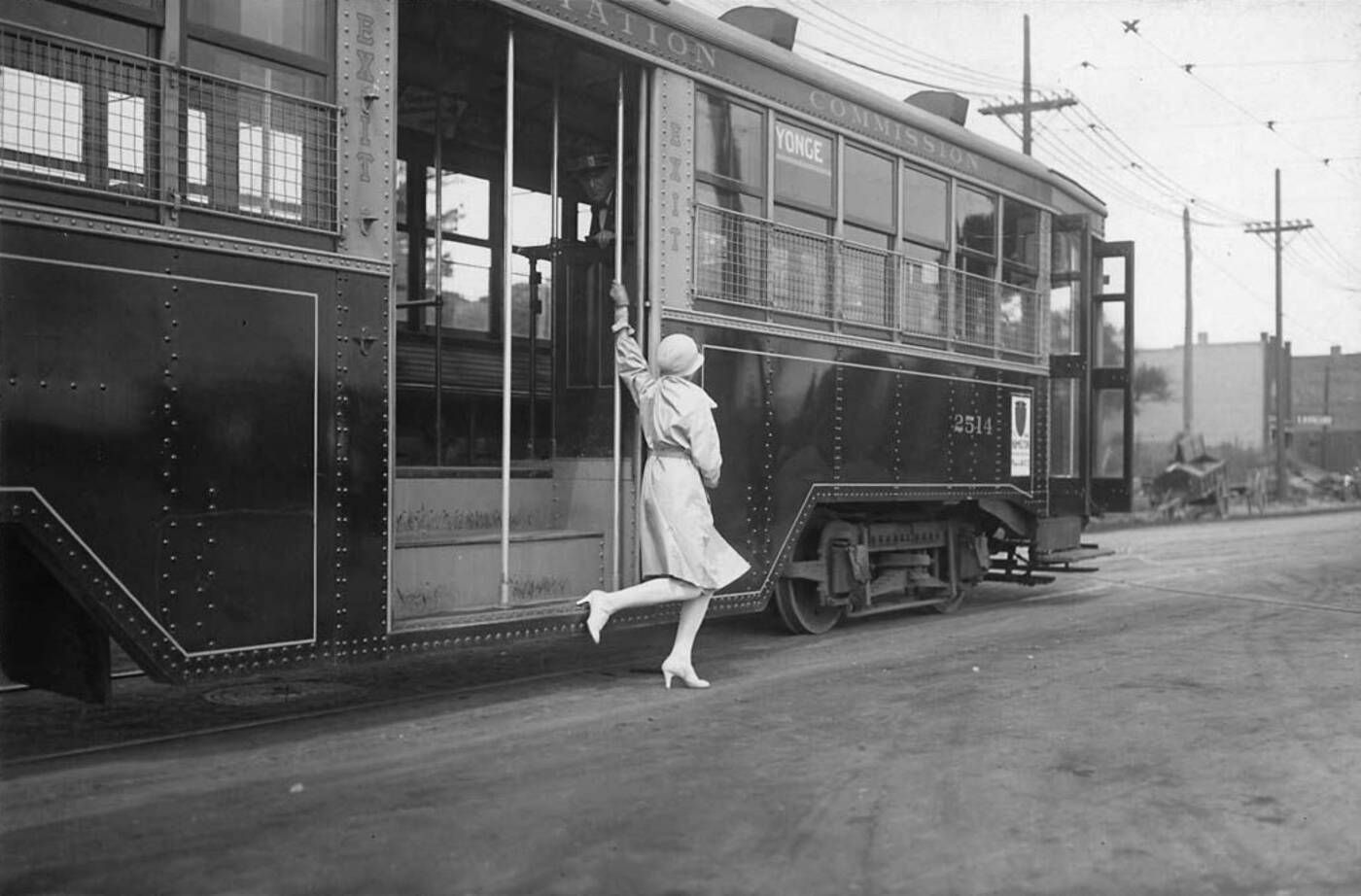
Disembarking from a Peter Witt streetcar in 1928.
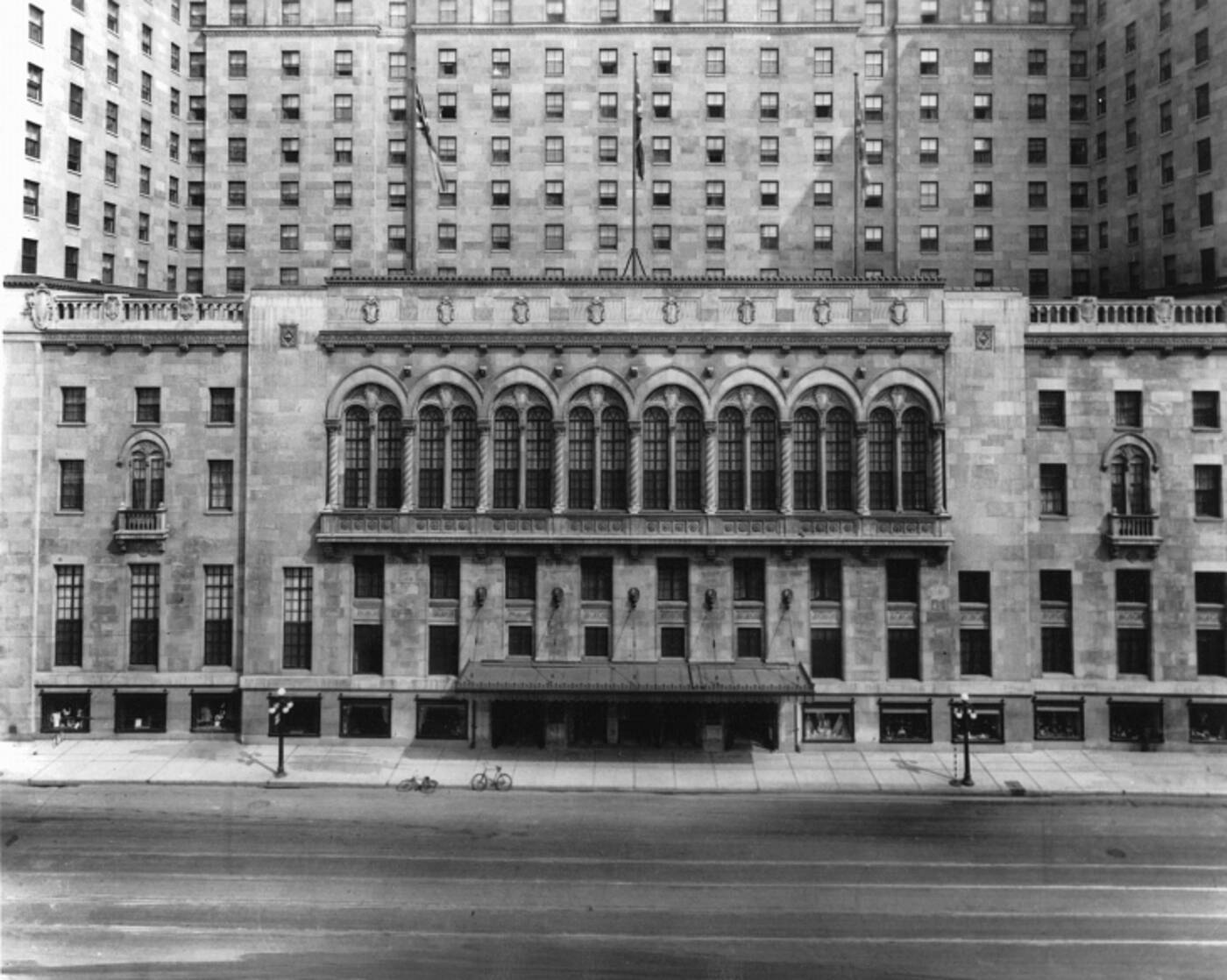
The brand new Royal York Hotel in 1929, which was the tallest building in the Commonwealth before the rise of the Canadian Bank of Commerce.
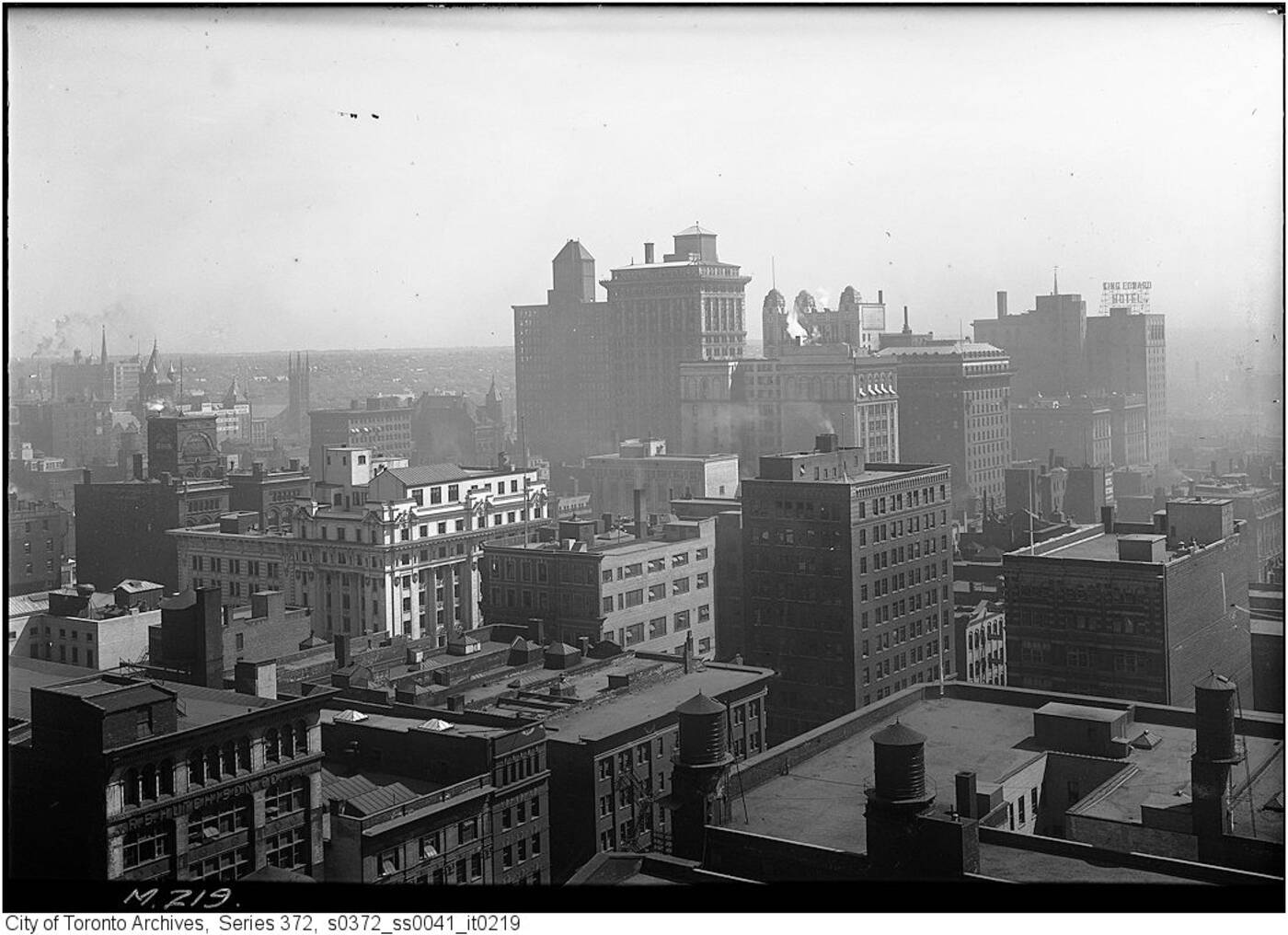
The density of downtown Toronto from the Royal York Hotel.
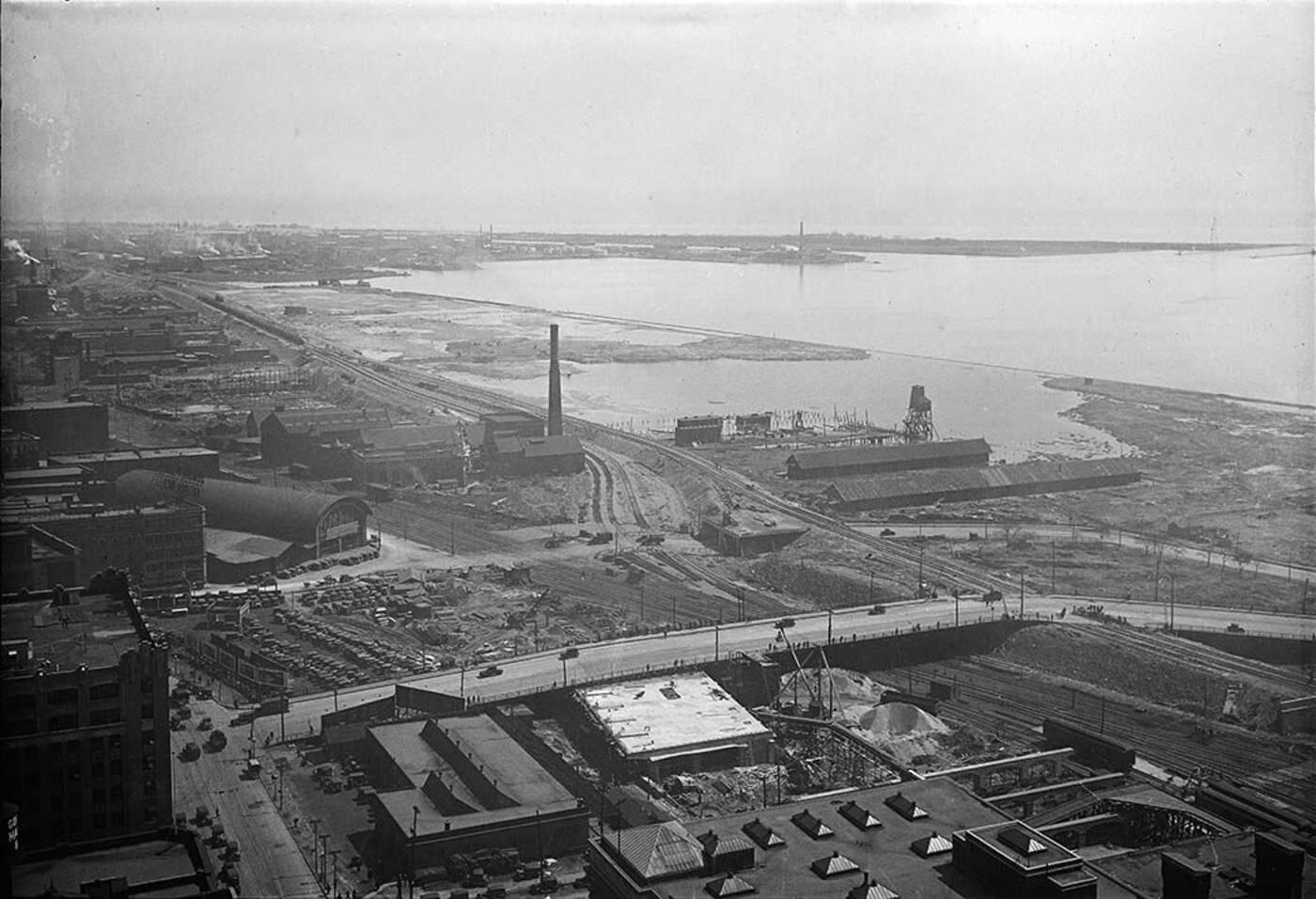
Looking southeast from the Royal York Hotel. Note the efforts to fill in the harbour are pushing eastward.
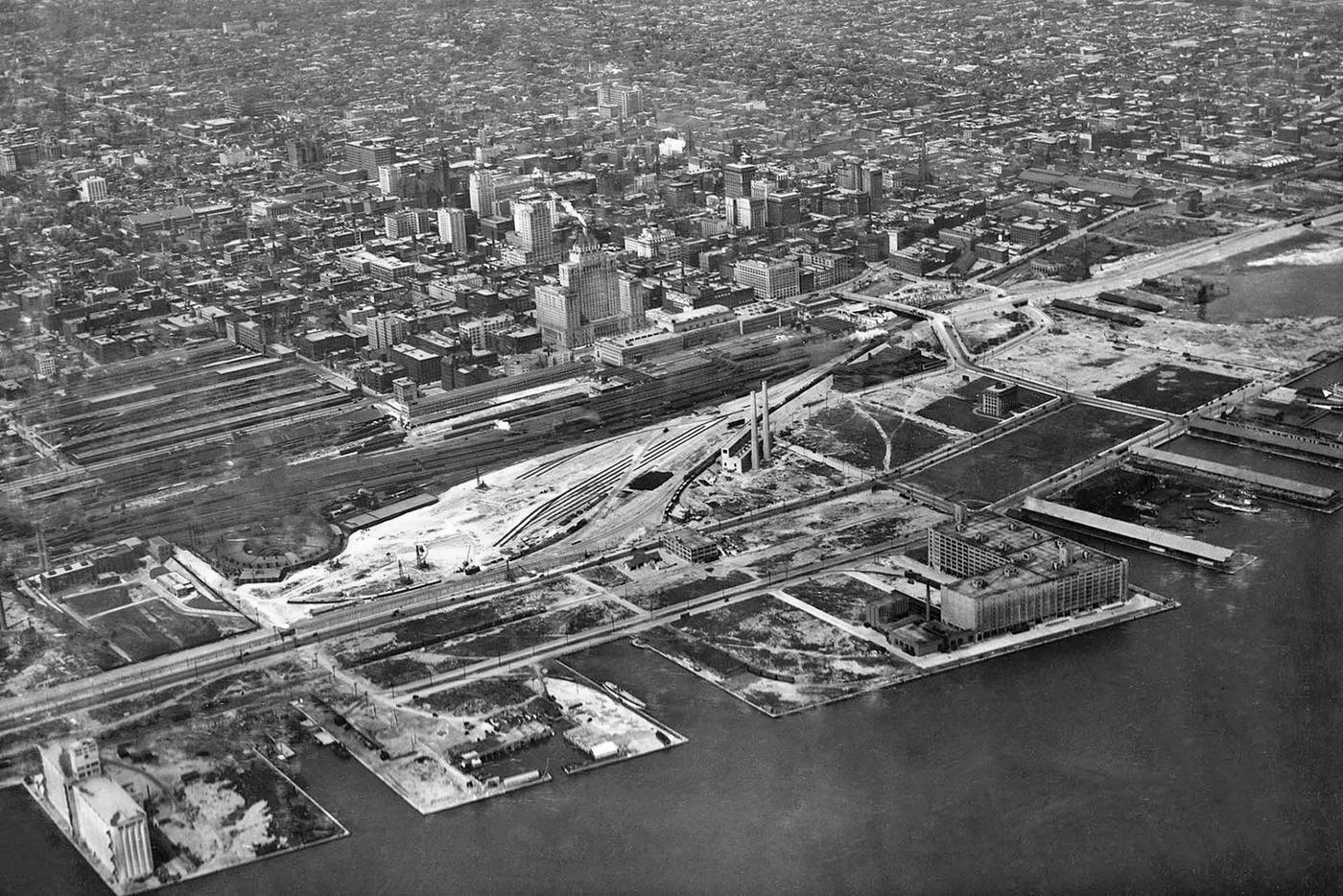 Aerial view of Toronto in 1929. Note the sprawling harbour area, which was a product of in-fill efforts throughout the decade.
Aerial view of Toronto in 1929. Note the sprawling harbour area, which was a product of in-fill efforts throughout the decade.
by Derek Flack via blogTO

No comments:
Post a Comment